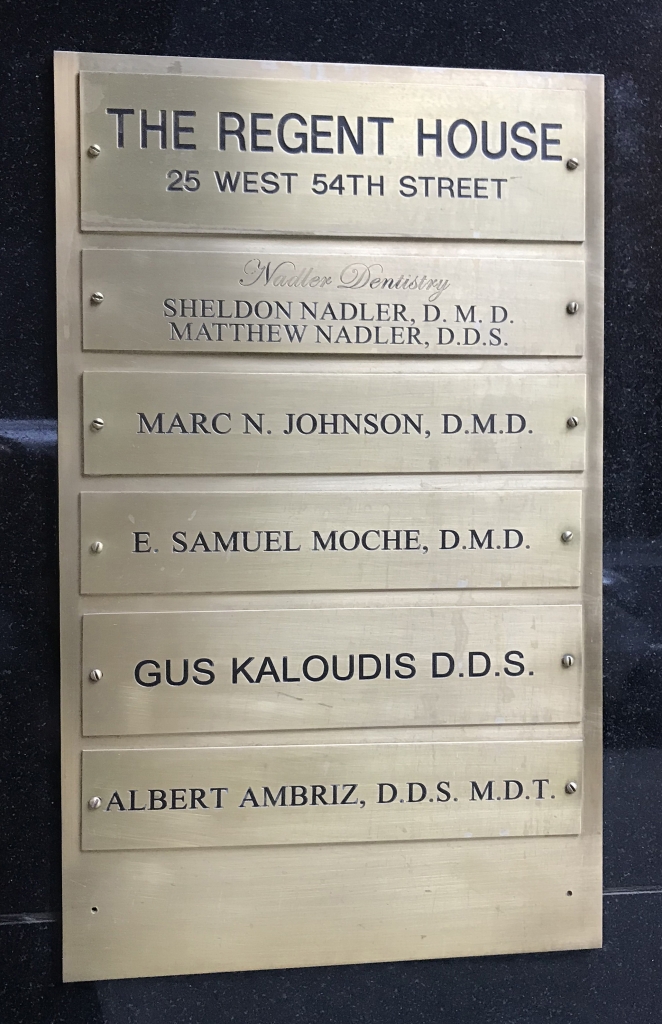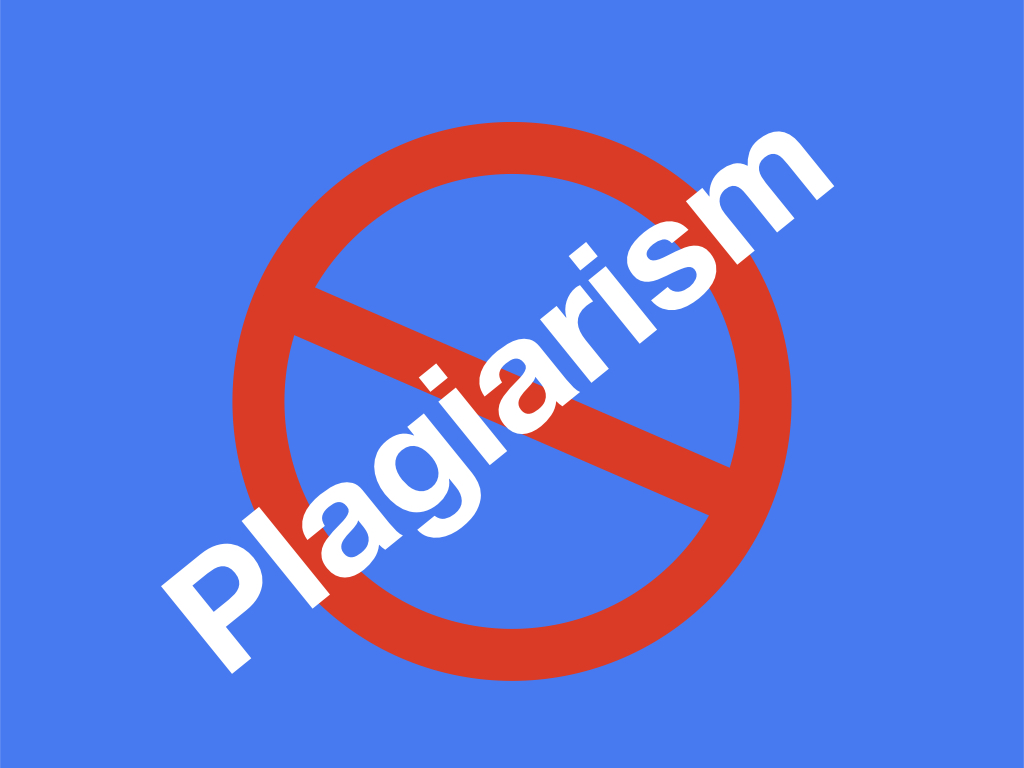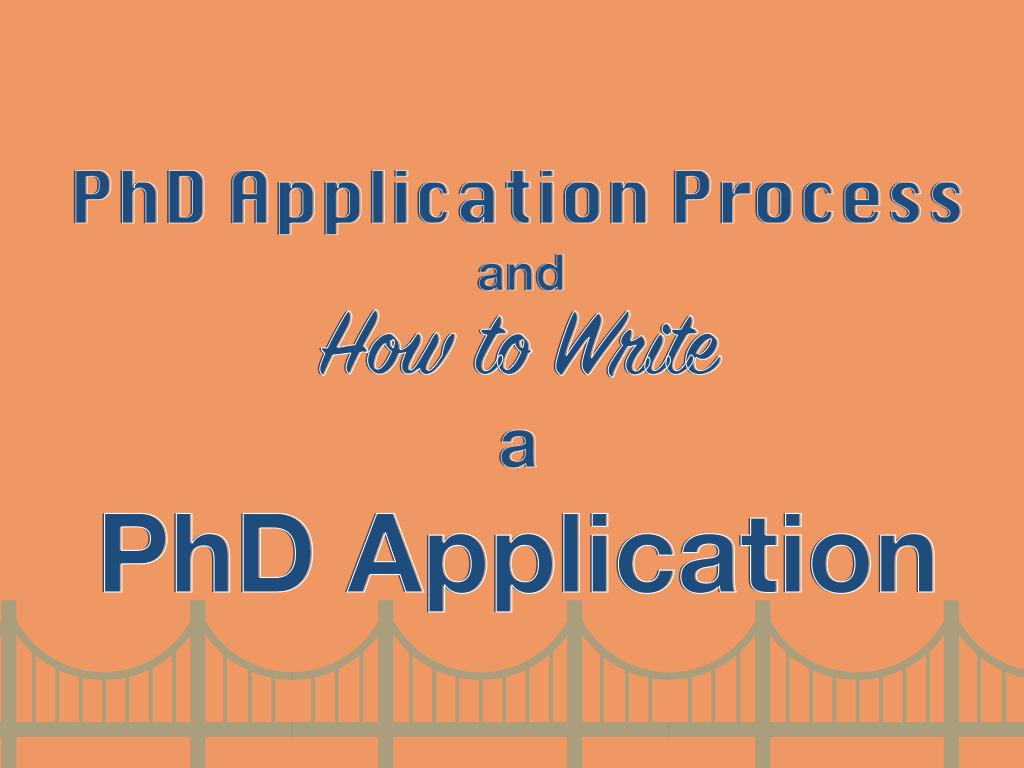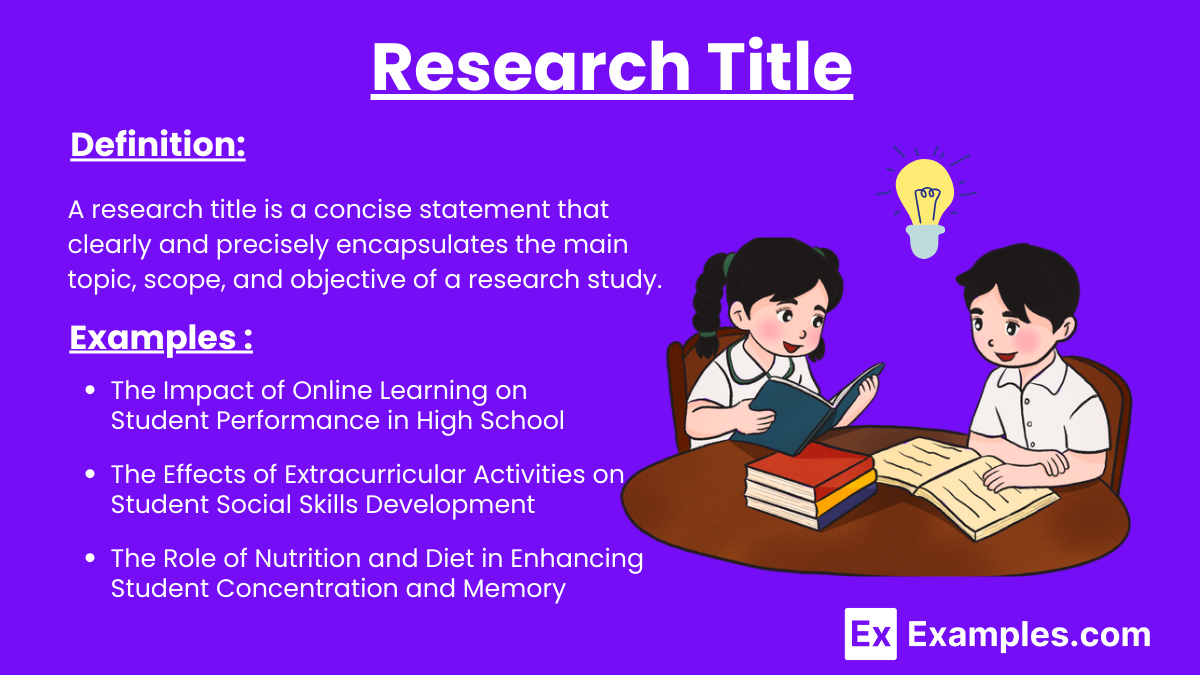

How to use the PhD title and all the little doctorate “rules”
There are many conventions in the academic world that can make it difficult to navigate the PhD title. The PhD title is awarded to those who have completed a doctoral degree but, not many people know how to use it once they have it.
This article will go through everything you need to know about using the PhD title and when you can start using it.
The “rules” are relatively simple and can be broken as they are not officially set in stone – other than when you can officially call yourself a doctor.
There is no one correct answer but it may be misleading if you use the PhD title incorrectly. Here are the recommendations for effective communication.
It very much depends on the setting. Here are some examples of how I would use my PhD titles awarded to me after my PhD degree.
| Situation | Preferred titles |
|---|---|
| Full formal university business | Dr Andrew Stapleton Ph.D, MChem |
| University emails | Dr Andy Stapleton |
| Speaking to a primary school class | Dr Andy |
| Emails to students I am lecturing | Dr Stapleton |
| How I wish to be called while teaching university classes | Andy |
How do you Write PhD correctly after a name? Is it ph d or phd?
It can be confusing to know exactly how to write PhD after your name. Which bits are capitalised? Is there a ‘.’ In the middle?
When writing a name with a PhD after it, the correct way to do so is to use “PhD” or “Ph.D. or Ph.D”
Depending on the preference of the individual, either form can be used.
However, if the individual has a business card that states their degree in full, then the more formal “Doctor of Philosophy” should be used.
It is important to note that using “PhD” without any periods is incorrect; this abbreviation should only be used in informal contexts such as emails or text messages. I tend to use PhD in my YouTube videos and some people have pointed out that this is incorrect…
Following the individual’s preferred format will ensure that their name and credentials are properly represented.
Should you use Dr as well as PhD?
Some people like to use Dr and PhD in their official titles. There are a couple of important points that you need to know about markers and academic titles.
- A person can have more than one marker in their name. For example my full title is Dr Andrew Stapleton, PhD, MChem.
- The doctor title at the front can be used as a variant to the PhD at the end.
It can be a little bit ambiguous if I was to use Dr Andrew Stapleton, PhD as there are two markers. This could mean that I have two PhD’s, it could mean that I have a PhD and a medical doctorate, or it could just be that I want to use both the doctor and the PhD tags for the one degree.
However, in my experience, I still like to use the doctor title at the front and the PhD tag at the end of my name for official purposes.
Academics would rarely use the PhD suffix in everyday communication. They would much rather just use the doctor title.
What is the proper title for a PhD?
The proper title for a PhD is Doctor of Philosophy. However, some teachers and professors like to be referred to without their official title.
If you are not sure about how your professor, lecturer, or friend with a PhD wishes to be officially addressed you can ask them.
Most of the time, I like to refer to my colleagues with their doctor title for official purposes, but I do not include the PhD at the end of their name. That is much better suited to a business card.
Your lecture may wish to be referred to as:
- Dr [last name]
- Dr [first name]
Asking them in the early stages of your relationship is the best way to work out which one they prefer.
If in doubt, always go for the more formal name and nomenclature.
When can you start to use your PhD title after your doctorate?
When you have earned your PhD, you can start using your title immediately. Although, it can be a little bit confusing as to when you have actually passed your PhD. Is it when you have submitted your dissertation? Is it when you have received the comments back?
The University of Adelaide says that you can use it from your conferral date:
Students can be conferred on one of five dates during the year and for PhD students the conferral date will be the first available following the completion of all the academic requirements of your degree, including final thesis lodgement and the disbursement of any outstanding financial obligations to the University.
I started using my PhD title as soon as my confirmation letter arrived at my house. It was the first letter from the University that referred to me as Dr Stapleton. It was incredibly excited.
Generally, it is acceptable to use the title “Dr.” both professionally and socially but socially, people very rarely use it – at least in Australia. But you should never use it if you are a PhD student, PhD candidate or enrolled in a PhD program without a previous PhD qualification.
I do use it in professional settings but it always makes me feel a little bit awkward.
However, there may be some restrictions for certain settings. For example, if have a research degree resulting in a doctor title and you are working in a medical setting – some institutions do not like you to use Dr as it can confuse patients into thinking that you have a medical degree.
Instead, they ask that you use the PhD tag at the end of your name rather than the doctoral title for official and professional communications.
What is the correct way to write PhD?
When writing about someone’s PhD, the correct way is to write the term in full and capitalize each letter.
This should be done for all academic degrees, not just PhDs.
For example, it would be “Doctor of Philosophy” or “PhD” instead of “Ph.D.”, “Dr.”, or “DPhil”.
Additionally, it is common to mention the field of study in which the degree was earned if known, such as “Doctor of Philosophy in Mathematics”. It is also good practice to include the institution that granted the degree if it is a recognized one.
When writing about someone’s PhD, use proper capitalization and include relevant information like field of study and institution if known to ensure accuracy.
How do you put a PhD in a title?
Putting a PhD in a title is not as complicated as it may sound.
Generally speaking, the proper way to list a PhD in an academic or professional setting is by writing “Dr.” before the name, followed by the person’s full name and the appropriate abbreviations for their degree.
For example, if John Smith has earned a doctorate in psychology, his credentials would be listed as “Dr. John Smith, Ph.D.”
In some cases, such as when addressing someone formally in speech or on a business card, it may also be acceptable to list their credentials as “John Smith, Ph.D.”
Depending on context and personal preference, some people may also choose to list their higher degrees after their names by writing out the entire degree instead of just its abbreviation.
For example, John Smith could choose to write his full title as “John Smith, Doctor of Psychology”
However, I have not seen this in real academic life.
Should the font size of Ph.D. be the same as someone’s name?
The question of whether the font size of a Ph.D. should be the same as someone’s name is an interesting one.
On one hand, it could be argued that the Ph.D. deserves to be highlighted and therefore should be given a larger font size than someone’s name to denote its importance.
On the other, it could be argued that this would not be necessary or appropriate, and that treating everyone equally regardless of their title or degree is more important.
It depends on context and usage – if both names appear in the same document then they should likely have the same font size; however, if one appears in a formal setting such as a diploma or certificate, then it may make sense to give it a larger font size than someone’s name to emphasize its importance and significance.
Ph.Ds (or PhDs) are an important academic achievement and should be respected accordingly but without going overboard by giving them overly large fonts sizes which can take away from rather than add to their importance.
Wrapping up – doctoral title rules
this article has been over everything you need to know that using the PhD title properly and effectively.
The doctor title can be used in place of the PhD and for incredibly formal communications, such as a business email or card, you can use both.
However, sometimes using both can cause confusion as to whether or not there is a reason first using both the doctor and PhD tags. Nonetheless, many people still use both.

Dr Andrew Stapleton has a Masters and PhD in Chemistry from the UK and Australia. He has many years of research experience and has worked as a Postdoctoral Fellow and Associate at a number of Universities. Although having secured funding for his own research, he left academia to help others with his YouTube channel all about the inner workings of academia and how to make it work for you.
Thank you for visiting Academia Insider.
We are here to help you navigate Academia as painlessly as possible. We are supported by our readers and by visiting you are helping us earn a small amount through ads and affiliate revenue - Thank you!

2024 © Academia Insider


How to Use a Doctorate with Your Name
—- For more on the the use of Port-Nominal Abbreviations , see that page . —- For more on use of an Honorary Doctorate , see that page . How to Use a Doctorate with Your Name
Here are the forms to use when addressing a person addressed as Dr. See the discussion below “How to Use a Doctorate with Your Name 1-2-3-4-5” for more information on who typically does use Dr. as part of their name and who does not.
—- Envelope or address block on letter or email to their office/place of work: ——– (Full Name), (Post-nominal abbreviation for doctorate held). ——– ( Name of office/place of work if appropriate) ——– (Address)
—- Social/Personal envelope: ——– Dr. (Full Name) ——– (Address)
—- Salutation – for both official & social: ——– Dear Dr. (Surname): How to Use a Doctorate with Your Name
Robert Hickey author of “Honor & Respect”
How to Use a Doctorate with Your Name: 1-2-3-4-5
—- #1) Holders of doctorates who work in academia or research institutions are addressed as ‘Dr. (Name)’ professionally and socially in a salutation or conversation. Thus, a Ph.D. professor at a college, a Ph.D. in biology doing scientific research, and a Ph.D. principal at an elementary school all use Dr. (Name) and everybody thinks it is normal.
—- NOTE: At some universities it is traditional to address faculty holding of academic doctorates as ‘Mr. (Name)’ or ‘Professor (Name)’ and not to address as ‘Dr. (Name)’. For those outside the academic community it is acceptable to follow the insider’s rule or to address holders of doctorates as ‘Dr. (Name)’ in writing or oral address.
—- #2) Protestant clergy with doctorates are addressed as ‘Dr. (Name)’ in a salutation or conversation. I specify ‘Protestant’ here because not all clergy is. For example, neither priests – addressed in a salutation or conversation as Father [Name] – nor rabbis – addressed as Rabbi [Name] – holding doctorates are ever addressed as Dr. [Name] . In a salutation or conversation they stick with Father[Name] and Rabbi [Name].
—- #3) Holders of doctorates who work outside academia or research don’t always prefer to be addressed as ‘Dr. (Name)’. in a salutation or conversation. —- —- A) In the USA ‘Dr.’ may be used depending on the work environment and/or when the degree isn’t pertinent to the conversation. E.g., a Ph.D. in finance working at a bank or a Ph.D. in American history working in software development are not likely to insist on being addressed as ‘ Dr. (Name)’ . But always ask for their preference. Use of, or omitting, the honorific can be a sensitive issue to some individuals! —- —- B) And, outside the U.S.A. everyone holding a doctorate will want to be addressed as ‘Dr. (Name)’ in every instance.
—- #4) In hospitals and healthcare environments historically there was a practice that only physicians (medical doctors, osteopaths, dentists, podiatrists, veterinarians, etc. ) are addressed as ‘Dr. (Name)’. This was explained to be out of consideration for the patients who want to know who ‘the doctors’ are and who are nurses and allied healthcare professionals.
—- That made for some unhappy professionals who earned doctorates in hospital administration, pharmacy, physical therapy and nursing, etc. – who felt they too were properly addressed as ‘Dr. (Name)’ . It’s my understanding that today all the holders of doctorates are addressed as Dr. (Name) and hospitals (etc.) have figured out other ways to define which doctor is a physician, which is a physical therapist and which is a nurse anesthetist.
—- #5) All that said, ultimately how one is addressed by others is up to the individual and usually everyone goes along. For example, if you and I meet a woman who identifies herself as ‘Monsignor Alice’ … I think it is unlikely she’s a Roman Catholic Monsignor. And, it’s unusual she has only one name, like Pink, Rhianna, Sting, Cher, or Madonna. But we should directly address her in conversation as ‘Monsignor Alice,’ it’s nice to meet you …’ because that’s what she says her name is. How to Use a Doctorate with Your Name
—- But, when she’s out of range, we will all be talking about her.
—- —- – Robert Hickey
Related Healthcare Links -V — — Chiropractor / Doctor of Chiropractic Medicine -V — — Dentist / Doctor of Dentistry -V — — Medical Doctor / Doctor of Medicine -V — — Military Physician / Armed Services -V — — Optometrist / Doctor of Optometry -V — — Osteopath / Doctor of Osteopathy -V — — Podiatrist / Doctor of Podiatry -V — — Veterinarian / Doctor of Veterinary Medicine
More Related Healthcare Links: -V — — Person holding a doctorate -V — — Pharmacist / Doctor of Pharmacy -V — — Psychologist -V — — Therapist
Related Links: —- —- —- Principal —- —- —- Headmaster —- —- —- President College University —- —- —- President of a School —- —- —- Chancellor —- —- —- Professor
When To Use Dr. (Name) and When To Use (Name), Ph.D.?
My daughter is receiving her Ph.D. and will be teaching. I would like to give her a name plate for her desk. Should it be ‘Dr. (Full Name)’ or ‘(Full Name), Ph.D. ‘? ——————- – AP
Dear AP, How to Use a Doctorate with Your Name
‘(Full Name), Ph.D.’ is the official form of her name. You will use it on the envelope, or in the address block of a letter, when you write to her with regard to her professional pursuits. This is the form the university will use when she is listed among the faculty. It is used by the degree holder, when specifying the exact degree is pertinent – like on business cards or in a list of academics.
‘Dr. (Full Name)’ is the social form of her name. You will use it when you write her name on a personal letter’s envelope, e.g., one sent to her home. This is the form everyone will use on the envelope when they send her a birthday or holiday card. It is rarely used by the degree holder since one does not correctly give oneself an honorific. The degree holder – in their signature or when introducing him or herself – just uses their name … no ‘Dr.’ It’s up to the other person to add the ‘Dr.’ E.g., I just introduce myself as ‘Robert Hickey’ – never ‘Mr. Robert Hickey.’
Sometimes you will observe a physician in a healthcare setting introducing him or herself as ‘Dr. (Name)’ – but there it is for the patient’s benefit to know they are the physician in a field of people wearing seemingly identical white coats!
‘Dr. (Surname)’ is the conversational form of her name. Use it both officially and socially in a letter’s salutation as well as in oral conversation.
So, for an office name plate use the official form of her name – (Full Name), Ph.D.
– Robert Hickey

Doctors present the official form of their name to the public: (Full Name) (Pertinent post-nominals for the service offered). The social form of their name does not include their degree: Dr. (Full Name). In both official and social salutations and conversations patients use Dr. (Name).

If My Doctorate is in Music, am I ‘Dr.’?
I hold a DMA, Doctorate in Music, from a Boston university and am a Church Music Director. Please could you advise me as to whether it is acceptable for the church where I work to list me in the service bulletins as: ‘Dr. (First name) + (Last name) ‘? —————- – CJ
Dear CJ: How to Use a Doctorate with your Name It is correct to list yourself in the bulletin using the professional form of your name … (First name) + (Last name), DMA. It specifies your academic credential in your professional domain.
Among protestant denominations many address their clergy with a doctorate orally and in a salutation as Dr. (Surname). If your church is one of those, and it is your preference is to be Dr. (Surnhttps://formsofaddress.info/wp-admin/post.php?post=13983&action=edit#ame), tell everyone that it is your preference to be addressed Dr. (Surname).
Usually academics and researchers who go by Dr. (Surname) professionally – use Dr. (Surname) socially. But ultimately whether a particular Ph.D. holder is ‘Dr. (Name)’ socially … especially outside of healthcare, academia or research … is at the preference of the bearer. Some insist, some don’t care, others say they answer to anything they are called. Ultimately your name belongs to you and if you want to be Dr. (Surname), then it’s your right to request everyone address you that way.
– Robert Hickey How to Use a Doctorate with your Name
May I Call Myself Dr. (Name) if my Degree Is Not Related to the Service I Offer?
I have a Ph.D. and license in counseling. Recently I sent out an announcement for a yoga class I will be teaching. The state of Colorado says I should not teach yoga as “Dr. (Name)”. How can I convince them I can? ——– – Kevin S., Ph.D., L.P.C., C.M.T., I.K.Y.T.A. , Counseling, Yoga Therapy, Integrative Health & Healing
Dear Dr. Kevin, How to Use a Doctorate with your Name
Your Ph.D. is in a field not related to the service you are offering.
A couple of typical practices I observe in the USA come to mind:
Professionals use with their name the degrees pertinent to their profession service. The degrees and certifications are provided for the benefit of the public so the public can quickly evaluate your credentials.
Here’s what I mean by pertinent . A pastor who would be the Reverend (Full Name) & Pastor (Name) at church on Sundays, would not use the Reverend (Full Name) & Pastor (Name) when teaching English Monday through Friday, at the local high school. That he or she is the Reverend might be mentioned in a complete biography or introduction. It just isn’t part of his/her name at school.
So, I can see if you are using ‘Dr. (Name)’ when offering a class in yoga, and your doctorate is not directly to the service you are offering, say a doctorate physical therapy or kinesthetics …. it would be confusing to me … and the state officials must think it is misleading to the public.
– Robert Hickey How to Use a Doctorate with Your Name

Should I Use Dr. or Ph.D. on an Invitation?
If a person holds a Ph.D., should his or her name be ‘Dr. (name)’ a wedding invitation? Or ‘( Name), Ph.D.’ ? Is this true for the father of the bride? The groom? Is the rule for names on wedding invitations and wedding envelopes different that the guidelines for social correspondence? ————– – Beverly Russell, Winchester, Virginia
Dear Ms. Russell: Wedding invitations and their envelopes are social correspondence. Post-nominal abbreviations ( Ph.D. is a post nominal abbreviation) aren’t used on social correspondence:
—- —- DON’T use Ph.D.
—- —- DO use Dr. (Name)
Another question that typically comes up is whether to use Doctor or Dr. (spelled out or abbreviated) on the invitation or on the mailing envelope?
The rule is to spell out everything and not to use abbreviations unless space is an issue.
But, Mr., Mrs., Dr., and Ms. (for which there is no spelled-out version) are typically used on invitations and when addressing invitations in even the most formal circles. I think ‘Doctor (Name)’ looks oh-so-highly precious, but I know some wedding planners who would wrestle me to the mat on that one.
When Should You Use the Forms on this Page?
You can use these forms of address for any mode of communication: addressing a letter, invitation, card or Email. (If there are differences between the official and social forms of address, I will have mentioned the different forms.) The form noted in the salutation is the same form you say when you say their name in conversation or when you greet them. ___ What I don’t cover on this site are many things I do cover in my book: all the rules of forms of address, about names, international titles, precedence, complimentary closes, details on invitations, place cards, all sorts of introductions , etc. I hope you’ll get a copy of the book if you’d like the further detail.
Not Finding Your Answer?
—- #1) At right on desktops , at the bottom of every page on tablets and phones , is a list of all the offices, officials & topics covered on the site.
—- #2) If you don’t see the official you seek included or your question answered send me an e-mail . I am pretty fast at sending a reply: usually the next day or so (unless I am traveling.) Note: I don’t have mailing or Email addresses for any of the officials and I don’t keep track of offices that exist only in history books.
—- #3) If I think your question is of interest to others, Sometimes I post the question – but always change all the specifics.
— Robert Hickey
Recommended Resources: The Protocol School of Washington (PSOW) and Protocol and Diplomacy International – Protocol Officers Association (PDI-POA) For more information see the Protocol Resources page.
Share This Story, Choose Your Platform!

How to Correctly Use the Titles Dr. & PhD With a Name

How to Reference a Person With a PhD
When someone has earned a Doctor of Philosophy, or Ph.D., degree, that person is subsequently referred to as “doctor” in formal speech. The same is true of a person who is a medical doctor, psychologist, dentist or veterinarian. In formal speech, that person should be referred to as “doctor.” However, the rules are different in written form when addressing someone who is called “doctor” in formal speech. In written form, the titles “Dr.” and “Ph.D.” are not interchangeable.
Determine the Type of Doctor
First, you should identify what type of doctor you are addressing. Doctors of medicine and psychology, doctors of dentistry and doctors of veterinary medicine must be addressed differently in comparison to academic doctors who have earned a Doctor of Philosophy doctoral degree. Be advised that there are different types of doctoral degrees. A Doctor of Philosophy degree is just one kind of doctoral degree. There’s also, for example, a Doctor of Education doctoral degree and a Doctor of Psychology doctoral degree. The titles associated with the various doctoral degrees are not interchangeable. Only a person who has earned a Doctor of Philosophy degree should be addressed as Ph.D.
Addressing a Doctor in Writing
Place the title of “Dr.” before the name of a person who is a doctor of medicine or psychology, doctor of dentistry, or doctor of veterinary medicine. For example Dr. George Ross. Always write the word “doctor” in its abbreviated form when it goes before the person’s name. Never write, for example, Doctor George Ross. Do not combine the title of “Dr.” with any other title even if the person could appropriately be addressed by a different title. Never write, for example, “Dr. George Ross, Ph.D.,” even if the person is a medical doctor who has also earned a Doctor of Philosophy degree. Pick one title. Do not use the “Dr.” title when referring to someone who is solely an academic doctor.
Put a comma followed by the title “Ph.D.” after the name of a person who has earned a Doctor of Philosophy doctoral degree. For example Stacey Childs, Ph.D. Do not combine the title of “Ph.D.” with any other title even if the person could appropriately be addressed by a different title. For instance, even if the person being addressed is a doctor of medicine who has also earned a Ph.D., never write, for example, Dr. Stacey Childs, Ph.D. Pick one title. Do not use the “Ph.D.” title when referring to someone who not earned a Doctor of Philosophy doctoral degree.
Related Articles
How to sign your name when you have a bachelor of science in criminal ....

Proper Way to Notate College Degrees

How to Address a DVM

Different Types of Doctoral Degrees

How to Address Multiple Ladies in a Letter

The Difference Between a Doctoral Degree and a Ph.D.

The Difference Between a PhD & DLitt

Doctorate Degrees That Don't Require a Dissertation
- The Emily Post Institute: What are some professional titles to know?
Maya Austen began freelance writing in 2009. She has written for many online publications on a wide variety of topics ranging from physical fitness to amateur astronomy. She's also an author and e-book publisher. Austen has a Bachelor of Arts in communications from the New England Institute of Art and currently lives in Boston, Mass.
How to Correctly Use the Titles Dr. & PhD With a Name
By maya austen / in health.

When someone has earned a Doctor of Philosophy (PhD) degree they are subsequently referred to as "doctor" in formal speech; the same is true of a person who is a medical doctor, psychologist, dentist or veterinarian. In formal speech that person should be referred to as "doctor." However, the rules are different in written form when addressing someone ho is called "doctor" in formal speech. In written form the titles "Dr." and "PhD" are not interchangeable.
- When someone has earned a Doctor of Philosophy (PhD) degree they are subsequently referred to as "doctor" in formal speech; the same is true of a person who is a medical doctor, psychologist, dentist or veterinarian.
Identify what type of doctor you are addressing. Doctors of medicine and psychology, doctors of dentistry, and doctors of veterinary medicine must be addressed differently in comparison to academic doctors who have earned a Doctor of Philosophy doctoral degree. Be advised that there are different types of doctoral degrees. A Doctor of Philosophy degree is just one kind of doctoral degree. There's also, for example, a Doctor of Education (EdD) doctoral degree and a Doctor of Psychology (PsyD) doctoral degree. The titles associated with the various doctoral degrees are not interchangeable. Only a person who has earned a Doctor of Philosophy degree should be addressed as PhD.
Place the title of "Dr." before the name of a person who is a doctor of medicine or psychology, doctor of dentistry, or doctor of veterinary medicine. For example: Dr. George Ross. Always write the word "doctor" in its abbreviated form ("Dr.") when it goes before the person's name. Never write, for example, Doctor George Ross. Do not combine the title of "Dr." with any other title even if the person could appropriately be addressed by a different title. Never write, for example, "Dr. George Ross, PhD," even if the person is a medical doctor who has also earned a Doctor of Philosophy degree. Pick one title. Do not use the "Dr." title when referring to someone who is solely an academic doctor.
- Place the title of "Dr." before the name of a person who is a doctor of medicine or psychology, doctor of dentistry, or doctor of veterinary medicine.
- Never write, for example, "Dr. George Ross, PhD," even if the person is a medical doctor who has also earned a Doctor of Philosophy degree.
Put a comma followed by the title "PhD" after the name of a person who has earned a Doctor of Philosophy doctoral degree. For example: Stacey Childs, PhD. Do not combine the title of "PhD" with any other title even if the person could appropriately be addressed by a different title. For instance, even if the person being addressed is a doctor of medicine who has also earned a PhD, never write, for example, Dr. Stacey Childs, PhD. Pick one title. Do not use the "PhD" title when referring to someone who not earned a Doctor of Philosophy doctoral degree.
Stack Exchange Network
Stack Exchange network consists of 183 Q&A communities including Stack Overflow , the largest, most trusted online community for developers to learn, share their knowledge, and build their careers.
Q&A for work
Connect and share knowledge within a single location that is structured and easy to search.
Should I write "PhD" or "Ph.D."?
Question pretty self-explanatory. Should the abbreviation of the Latin term philosophiae doctor be written as PhD (no periods) or Ph.D. (with periods)?
- abbreviations
- 1 You have a couple of correct answers below. Personally I avoid periods in abbreviations, so I would use PhD, just as I would say Washington DC using the postal code abbreviation DC rather than the historical abbreviation D.C. (District of Columbia). – Wayne Commented May 17, 2011 at 12:38
6 Answers 6
Actually both are correct. I could easily find both on my NOAD, and there are plenty of pages on the net where you find it written as "PhD".
The OALD gives an interesting distinction, stating that Ph.D. is especially North American English.
Now, being a non-native speaker, I can only rely on official sources to state who uses what , but there's no doubt that both variants are used.
Lastly, I think there's really no point in distinguishing them as " Philosophiae Doctor " or " Doctor of Philosophy " because it's the same exact expression, although considering the abbreviation, the former is the correct and original long version, the latter is just the English translation.
- 1 Collins English Dictionary shows a separate abbreviation if you want to specify the degree in English: "DPhil". (Also at dictionary.reference.com/browse/phd , just further down the page.) – MT_Head Commented May 17, 2011 at 9:52
- @MT_Head: Thanks for commenting. With "if you want to specify the degree in English" you mean "being unambiguous"? – Alenanno Commented May 17, 2011 at 9:54
- Indeed. To give an anecdotal example: in the company I used to work for, which was British, people didn't tend to use periods for abbreviations of degrees, e.g. MSc , PhD . I now work for an American company, where the convention is to use them, hence Ph.D. – Steve Melnikoff Commented May 17, 2011 at 9:55
- I see, I was thinking of that before honestly, since PhD (or PHD) can be other things too... Thanks for pointing it out! – Alenanno Commented May 17, 2011 at 10:04
- 6 @MT_Head DPhil is also what a PhD is called at Oxford. If you use DPhil then a BE speaker would assume you specifically mean Oxford. – mgb Commented May 17, 2011 at 15:07
PhD and Ph.D. are both correct. Canadians tend to omit the periods and those from the U.S. tend to keep them. A reference grammar explains it like this:
2 abbreviations and acronyms 1 punctuation We usually write abbreviations without full stops in modern British English. Full stops (AmE ‘periods’) are normal in American English. Mr (AmE Mr. ) = Mister (not usually written in full) kg (AmE kg. ) = kilogram […]
Quote source: Swan, Michael. Practical English Usage (Third Edition). page 2.
I tend to use both 'PhD' and 'Ph.D'. A DPhil is awarded at both Oxford Uni and Sussex Uni in England. All others award PhDs to my knowledge.
It bugs me when people use 'Dr' before their name and then also state the award following it. I feel it should be one or the other.
- Agree with Dr being used with PhD part. – Failed Scientist Commented Jul 28, 2016 at 10:19
- 4 "Oh, I'm going to get some cash out of this ATM machine." – hBy2Py Commented Mar 31, 2017 at 17:00
- 1 @hBy2Py : Ha! That's an example of the ironically named RAS syndrome (Redundant Acronym Syndrome syndrome). According to Wikipedia the term was coined in 2001 in a light-hearted column in New Scientist, though I haven't a reference for the original article. On the original question, during my lifetime (started in the 1950s) in the UK there has been a slow but steady move to reduce the use of punctuation and capitalisation in print. This has been driven in part by the newspaper industry, though I can't give any source other than the say-so of journalist friends. – Duckspindle Commented Sep 3, 2022 at 12:17
As many noted, both are accepted, so it is a matter of convention and taste.
The important is to be consistent with the other abbreviations you use throughout your text. Compare:
- I got a Ph.D. in A.I. at U.C.L.A in the U.S.
- I got a PhD in AI at UCLA in the US.
My personal preference goes for omitting periods, given that this is an abbreviation, following the Guardian style guide :
Do not use full points in abbreviations, or spaces between initials, including those in proper names
I remember discussing this with a trained secretary a long time ago. We eventually decided that the use of camel case (starting each abbreviated word in upper case) removes the need for the periods when abbreviating titles. However, when an abbreviation is relatively new or used in an unusual context, the periods help to avoid ambiguity.
For my own use, the overriding consideration is 'house style'. It is more important for a document to be internally consistent, to avoid confusion.
- Bobble's "house style" consideration typically applies not just to a single document but also, as the name implies, to all documents emanating from the same "house". For example, my academic discipline (linguistics) traditionally employs the no-periods convention for all titles (not only PhD, MA, and BA but also Mr, Dr, and Prof), while the style enforcer at my academic institution (an American university) insists that I sprinkle periods around (for a total of 9 in my 6 examples). – H Stephen Straight Commented Feb 12, 2013 at 22:32
The most common I have seen are:
I have rarely come across a Ph.D. (with two periods).
- 28 Ugh. Ph.D looks like the inconsistent worst of all worlds. – user1579 Commented May 17, 2011 at 16:57
Not the answer you're looking for? Browse other questions tagged abbreviations latin periods or ask your own question .
- Featured on Meta
- Upcoming initiatives on Stack Overflow and across the Stack Exchange network...
- We spent a sprint addressing your requests — here’s how it went
Hot Network Questions
- What does "that" in "No one ever meant that, Drax" refer to?
- Attach "variables" to objects to be used in Geometry Nodes
- Why do Electric Aircraft Seem to Eschew Photovoltaics?
- How to photograph the lettering on a bronze plaque?
- Is "sinnate" a word? What does it mean?
- What is the reason for using decibels to measure sound?
- If I Trace "Pickup", will I pickup?
- Why was this a draw? What move I supposed to play to win?
- Looking for the title of a short story for my students to read about a woman searching for the last man alive
- Dual citizenship with USA & South Africa and exited South Africa on wrong passport (USA). What passport do I use to reenter SA?
- How much does a factory reset help in hiding a device's identification details?
- When do people say "Toiletten" in the plural?
- Directions of puff pastry folds
- Tour de France General Classification time
- Equivalence of inverse transformations under distributional equivalence
- Is "necesse est tibi esse placidus" valid classical Latin?
- Transcribing text on Death Record
- Is a desert planet with a small habitable area possible?
- Why not build smaller Ringworlds?
- Did Joe Biden refer to himself as a black woman?
- Running command with pipe and spaces on PowerShell using `wsl`
- Simulate slow disks in KVM to see effect of LVM cache in test setup
- Using 50 Ω coax cable instead of passive probe
- Do you always experience the gravitational influence of other mass as you see them in your frame?
WxT Language switcher
- Français fr
PhD, Ph.D., Dr.
In English, PhD can be written with or without periods; both are correct. The trend today is to drop periods with abbreviations of academic degrees. However, many sources, including the Canadian Oxford Dictionary , still recommend the use of periods: Ph.D.
When you are addressing a person with a doctoral degree, it is considered more polite to use the title Dr. or the academic abbreviation PhD with the person’s name, instead of the simple courtesy titles Mr. or Ms.
Note: Do not use both the title and the degree. If the degree is listed after the name, the title is not used before the name.
- Chris Cameron, PhD.
- Dr. Chris Cameron
Copyright notice for Writing Tips Plus
© His Majesty the King in Right of Canada, represented by the Minister of Public Services and Procurement A tool created and made available online by the Translation Bureau, Public Services and Procurement Canada
Search by related themes
Want to learn more about a theme discussed on this page? Click on a link below to see all the pages on the Language Portal of Canada that relate to the theme you selected. The search results will be displayed in Language Navigator .
- Abbreviations, acronyms and symbols
- Abbreviations
Related links
- Writing Tips Plus (home page)
- Writing tools
- Language Navigator (for fast access to language tips)
- TERMIUM Plus ®
Thank you for your help!
You will not receive a reply. For enquiries, contact us .
- PRO Courses Guides New Tech Help Pro Expert Videos About wikiHow Pro Upgrade Sign In
- EDIT Edit this Article
- EXPLORE Tech Help Pro About Us Random Article Quizzes Request a New Article Community Dashboard This Or That Game Popular Categories Arts and Entertainment Artwork Books Movies Computers and Electronics Computers Phone Skills Technology Hacks Health Men's Health Mental Health Women's Health Relationships Dating Love Relationship Issues Hobbies and Crafts Crafts Drawing Games Education & Communication Communication Skills Personal Development Studying Personal Care and Style Fashion Hair Care Personal Hygiene Youth Personal Care School Stuff Dating All Categories Arts and Entertainment Finance and Business Home and Garden Relationship Quizzes Cars & Other Vehicles Food and Entertaining Personal Care and Style Sports and Fitness Computers and Electronics Health Pets and Animals Travel Education & Communication Hobbies and Crafts Philosophy and Religion Work World Family Life Holidays and Traditions Relationships Youth
- Browse Articles
- Learn Something New
- Quizzes Hot
- This Or That Game
- Train Your Brain
- Explore More
- Support wikiHow
- About wikiHow
- Log in / Sign up
- Computers and Electronics
- Online Communications
How to Address a PhD in Email
Last Updated: May 12, 2024 Fact Checked
This article was co-authored by Shannon O'Brien, MA, EdM and by wikiHow staff writer, Eric McClure . Shannon O'Brien is the Founder and Principal Advisor of Whole U. (a career and life strategy consultancy based in Boston, MA). Through advising, workshops and e-learning Whole U. empowers people to pursue their life's work and live a balanced, purposeful life. Shannon has been ranked as the #1 Career Coach and #1 Life Coach in Boston, MA by Yelp reviewers. She has been featured on Boston.com, Boldfacers, and the UR Business Network. She received a Master's of Technology, Innovation, & Education from Harvard University. There are 8 references cited in this article, which can be found at the bottom of the page. This article has been fact-checked, ensuring the accuracy of any cited facts and confirming the authority of its sources. This article has been viewed 57,770 times.
Writing an email to a college professor with a Ph.D.? Do you call someone with a Ph.D. a doctor? Figuring out the right way to address someone with a doctorate is a lot easier than it may seem, and we’re going to break this down so that you can get it right. In this article, we’ll walk you through everything you need to know about how to address someone with a Ph.D.
Do you address someone with a Ph.D. as a doctor?

How to Address an Email to Multiple Professors

- “Dear Professor Jones, Professor Smith, and Professor Ali.”
- “Dr. Jones, Dr. Smith, and Professor Ali,”
- “Dr. Jones and Professor Smith,”
What is the proper way to write a name with Ph.D.?

- You may have seen Ph.D. holders put “Ph.D.” at the end of their name. This is something authors do, but you shouldn’t need to write it this way.
Do you call a professor a doctor?

- You’re very unlikely to get into any trouble by referring to your college teacher as “professor,” even if they are a doctor. At worst, they’ll kindly correct you.
- In the United States, it is generally seen by most educators as socially acceptable to address a doctor who is also a professor as “professor.” It’s not technically correct, but you’re unlikely to offend any of your educators. As such, you can usually call a doctor a professor or Dr. in email. [4] X Research source
How do you address Ph.D. students?

- A Ph.D. student is not a doctor yet, but they may still be a professor.
- “Professor” traditionally refers to tenure-track educators at the collegiate level, but there’s no harm or risk of offense by calling an adjunct instructor, lecturer, or TA, “professor.” [6] X Research source
- “Miss” has historically been used to address unmarried women, while “Mrs.” has referred to married women. These titles are going out of style since many people find them offensive, so you’re best off skipping these.
Do the rules for addressing Ph.D. holders ever change?

- For example, in Canada, you are not “officially” allowed to refer to non-medical doctors as “Dr.” You would address them as “Mr. Jones, Doctor of Mathematics.”
- This also applies to the “Jimmy Jones, Ph.D.” form, too. In the United Kingdom, for example, you don’t use any periods. Someone in the UK would write, “Jimmy Jones, PhD” without the punctuation.
Expert Q&A
- It doesn’t matter if someone has a Ph.D. is in philosophy, education, biology, math, or any other discipline. If a person has obtained a doctorate degree, they’re a doctor—even if they don’t see patients. [8] X Research source Thanks Helpful 0 Not Helpful 0
- Ph.D. is shorthand for doctor of philosophy. The word “doctor” comes from the Latin word “docere,” which means “to teach.” In ancient times, “Philosophy” was used to refer to any academic field. [9] X Research source Thanks Helpful 0 Not Helpful 0
- The only exception, at least in the United States, are people with a law degree (they are technically “Juris Doctors”, or J.Ds). You do not use a special title or honorific to address someone with a law degree. Thanks Helpful 0 Not Helpful 0

You Might Also Like

- ↑ https://www.btb.termiumplus.gc.ca/tpv2guides/guides/wrtps/index-fra.html?lang=fra&lettr=indx_catlog_p&page=9e-8ycfVZx-4.html
- ↑ https://www.purdue.edu/advisors/students/email.php
- ↑ https://www.minotstateu.edu/careers/pages/cover-letter-salutation.shtml
- ↑ https://writingcenter.gmu.edu/writing-resources/different-genres/sending-email-to-faculty-and-administrators
- ↑ https://www.universityaffairs.ca/career-advice/career-advice-article/what-should-i-call-my-professor/
- ↑ https://healthenews.mcgill.ca/use-of-dr-doctor-in-quebec-and-updating-your-honorific-in-mcgills-systems/
- ↑ https://www.cmaj.ca/content/re-who-entitled-be-called-doctor
- ↑ https://www.franklin.edu/blog/doctorate-vs-ph-d-what-are-the-differences
About This Article

- Send fan mail to authors
Is this article up to date?

Featured Articles

Trending Articles

Watch Articles

- Terms of Use
- Privacy Policy
- Do Not Sell or Share My Info
- Not Selling Info
wikiHow Tech Help:
Tech troubles got you down? We've got the tips you need
- How to Cite
- Language & Lit
- Rhyme & Rhythm
- The Rewrite
- Search Glass
How to Cite a Ph.D. Title at the End of a Name
According to the sixth edition of the "Publication Manual of the American Psychological Association" and the seventh edition of the "MLA Handbook for Writers of Research Papers," writers using either the APA or MLA documentation format should avoid using titles such as "Ph.D." by authors' names in the citations or references pages. However, these style guides, along with the 16th edition of "The Chicago Manual of Style" and AP style, do allow the use of such titles at the end of names in the text, when needed.
In Chicago and MLA style, a Ph.D. title is not included in the references, but it can be included in the text. In that case, the doctoral degree title at the end of a name appears after a comma but with no punctuation within the letters in the degree and both the "P" and the "D" should be capitalized.
For example: Steven Hammersmith, PhD.
AP style also does not cite the degree in the references, and it prefers a phrase instead of an abbreviation in the text, when possible.
For example: Jane Doe, who has a doctorate in chemistry.
When the preferred style is too cumbersome, such as when several people and their titles need to be identified, AP style requires a period between the two portions of the abbreviation: Ph.D.
The capitalization remains the same as in Chicago, however, as does the requirement for the comma between the name and the title.
APA is similar to AP style, with a period between the two portions of the abbreviation, and it also does not include the academic degree in the references.
Need help with a citation? Try our citation generator .
- Publication Manual of the American Psychological Association (6th edition); American Psychological Association
- MLA Handbook for Writers of Research Papers (7th edition); Modern Language Association
- Purdue Online Writing Lab: General Format
- Purdue Online Writing Lab: MLA Works Cited Page: General Format
- The Chicago Manual of Style (16th edition); University of Chicago Press Staff
- The Chicago Manual of Style Online: Abbreviations
Kristie Sweet has been writing professionally since 1982, most recently publishing for various websites on topics like health and wellness, and education. She holds a Master of Arts in English from the University of Northern Colorado.
From admission to dissertation. Tips on making the PhD journey happy, productive and successful

How To Write PhD? Is it ph d or phd
How do you write phd correctly after a name is it ph d or phd, here are the steps to write phd correctly:.
- Firstly, “P” must be in a capital case.
- Secondly, “h” is in small case with no space after “P”
- Thirdly, use period/full-stop after “h”
- Fourthly, Write “D” in capital case.
- Fifthly, keep Period after “D”
- Finally, the correct way to write is Ph.D .
- Or, It can be also written as PhD in a sentence.
- As per APA style, write Ph. D
- As per Chicago style, write PhD
- As per MLA style, write it as Ph. D.
For example this is how to write PhD title after your name: Dr.John Mathew, Ph.D. You can write PhD after name on your business cards, resumes, CV’s or identity cards or on nameplates etc. Some have confusion with the use of comma and full stops while writing PhD title after name. Here is my indepth review how to write out properly PhD.
Writing a PhD title after name
Use capital “p” and “d” in the word ph.d..
You must write ‘P’ as capital and ‘D’ as capital letters. Though there is no strict rule on how to use capital and small letters, many of them do this way. Both letters which I have just mentioned must be written in Capital because those letters are the heart of the abbreviationPh.D. There is no other way of writing. Even if you search the whole world and ask many people and read many books, this is how PhD title is written. Sometimes there are possibilities that both letters are written in small letters by mistake. You need to correct instantly if such is the case. Otherwise, it looks awkward when someone looks at it or reads it. Usually, mistaken words are clearly observed than that of rightly written ones.
Use small letter ‘h’ in the word Ph.D.
The letter ‘h’ is what written small letter in this 3 letter word is. We write it in a small letter after name because this letter ‘h’ is in the middle of the word Ph.D. Here also don’t write mistake by using capital letters. This is the reason why many people write a PhD title after the name wrongly. They are confused about where to use capital letters and were not to use small letters. I suggest you practice all the letters in one or other way.
Why do we write a PhD title after the name?
We write a PhD title after the name to know that one has completed his doctoral studies and it is a sign of knowledge and status. We write a Ph.D. even for other purposes. For example, if someone is working in a university, it is mandatory that his qualification must be known to all the students and as well as the staff. This is why we write the Ph.D. title after the name. Not only in the university but also to the competent authorities who come for an inspection to the university must know the status of the faculty profiles. So the title Ph.D. is written after every faculty name as a title.
Should we use bold letters
I say a big no. You cannot write bold and fashioned way while writing PhD title after your name. As you write you must make it look similar along with the name without any difference. There is no way that you must write the Ph.D. title in bold fonts. This way, it looks very odd for those who look. Instead of reading your name, they will read Ph.D. firstly. So there is a chance of not remembering your name. So never use bold fonts while writing PhD title after your name.
Should we use Italic Letters
Again it is a big no. Do be too creative while writing a Ph.D. after your name. The use of italics is a big mistake. Do not use such writing in italics. Every time you use italic, again it looks very different from the original name adjacent to it.
Is Ph.D. a title after your name?
Do you think it is a PhD title or just a status? It is both status and title. Though in my personal opinion it is not a title, many call it as a title. But if you ask me I would tell it is a status word that is symbolically represented a matter of qualification. This is only my personal opinion about the title of Ph.D. So if at all you have some doubts about how this title arose as a part of history, you must read a vast number of history books about the Ph.D. title. It all requires for you to understand that a Ph.D. is not a title finally and just a resemblance of qualification.
Is it good to put PhD after title in your identity cards?
No, you must not use the title Ph.D. after your name in any type of identity card. These cards are existing irrespective of your qualification. This is meant to identify you as you are. There is no necessity what you have achieved. There is no need for knowing your qualifications. So in any type of identity card which is issued by the government like passport and voter card etc, you cannot use such title after your name. But there is one exception that the identity card at university or college or at job area must be given with Ph.D. title. If you ever need expert help with writing your Doctoral level papers, go to WriteMyPaperHub and send your request to write my PhD thesis for me .
Should we use the subject name when using a Ph.D. with the name?
This thought is quite awkward. But I must still mention this. There are some who use the subject name after the Ph.D. title along with the name. Like for example Dr. Luke, Ph.D. in Linguistics. Using this way is quite reasonable if there are some important debates or international meetups. Otherwise, I don’t suggest such type of writing after your name.
What happens if you don’t use a Ph.D. after your name?
If you do not use the Ph.D. title after your name, people around you won’t know that you are a doctoral research fellow. So it is very important to let them know it. You can only use this if at all there are some students around you or any known people. If there are unknown people around you, then there is no way that it is mandatory to use a Ph.D. after your name. Anyhow, I say that there is no danger of not using Ph.D. after your name.
Should comma be addded before or after PhD
Yes, a comma is a mandatory thing to be added after Ph.D. This is a rule. Otherwise, it is mixed combined with your original name. It will become part of your name. So comma is good after your name. I have already given the example above on how to put a comma after your name. But let me give here one more example as a matter of understanding. Dr.Mohima, Ph.D. If you see the name, for example, there is a comma used after the name to separate Ph.D. from it. So try to put a comma. But never use another punctuation mark as such full stop or colon after your name. I have seen people using other punctuation marks like semicolon after name and then they write the title Ph.D. Some don’t use at all. All such things are mistakes. Use the only comma after your name always.
Can we write Dr instead of Ph.D. after the name?
Writing a doctor instead of a Ph.D. means a different thing. So you cannot use such way. As this is not the right format. ‘Dr’ is used at the beginning of the name as another title. But after the name, it must be a Ph.D. and not ‘Dr’
Should we write a Ph.D. at all after one’s name that is too long?
Sometimes it so happens that your name is too long to write Ph.D. after it. During this trouble, you must cut out some part of the name and type PhD as a title after your name. There is no other way to do it. Usually, longs name are common in some countries like Germany and India. But in the USA we have shorter names. Whatever may be the length, you must try to use the most used name and eliminate the rest of the name. This way you can use the title Ph.D. comfortable after your name. Always try to use the same name. Don’t change the name or cut your name in different ways on different days. These will again a problem to your recognition.
Should we write phd or ph d on business card, welcome banners during functions?
On welcome banners and business cards, it is very important to mention the title Ph.D. This will be more serious if you do not use the Ph.D. title after the name. There are many people watching that public banner. If you do not write the title after the name, you are disrespecting the guest totally. So be aware of using the title ofPh.D. whenever you have public functions or welcome banners or during some important meetings. This is a sign that others should treat the guest better than the other out there.
Should the font size of Ph.D. be the same as someone’s name?
The name and the title Ph.D. must be in the same size. There must not be unusual differences. Font sizes matter a lot. Don’t use wrong font size or awkward fonts while using your title Ph.D. after your name. The best font could be like Ariel, Lato, Times New Roman, etc. These fonts will look better as a Ph.D. title after your name. Initially, there is some confusion about using the right font. But once you learn the size usage, you are comfortable using them rightly. Even when you write manually, you can easily write with similar size throughout. This requires a good amount of practice to write the Ph.D. title after your name with good font limitations.
Popular posts that others are reading now::
- Age Limit For PhD in the USA. Little known restriction for PhD, USA.
- How many words per page in apa style format
- How to do PhD in Harvard University
- Number of phds per country
- Why is PhD not Dph| What does PhD stand for| Funny
Syam Prasad Reddy T
Hello, My name is Syam, Asst. Professor of English and Mentor for Ph.D. students worldwide. I have worked years to give you these amazing tips to complete your Ph.D. successfully. Having put a lot of efforts means to make your Ph.D. journey easier. Thank you for visiting my Ph.D. blog.

You May Also Like

What must be the Age limit for PhD in Norway

Age limit for PhD in Germany

Age limit for PhD in Europe
Etiquette Articles
The world of Emily Post etiquette advice is at your fingertips. Please, search or browse our comprehensive online etiquette articles.
- Trending Topics
- Table Setting Guides
- Lizzie Post's Recipes for All Occasions
- Avoid Political Pitfalls
- Featured Articles
- General Tipping Guide
Official Forms of Address
Addressing a former president of the united states.
- Dining Etiquette
- Top 10 Must Know Table Manners
- Lipstick at the Table
- Texting at the Dinner Table
- Business Etiquette
- Tips on Preparing for a Job Interview
- Professional Email Etiquette for Work
- Beyond the Handshake: Hugs and the Social Kiss
Wedding Etiquette
- Wedding Planning Series
- Wedding Thank Yous
- Wedding Invitations
- Children's Etiquette
- Can You Teach a Toddler Etiquette? Yes!
- What to Do About Bullies
- The Golden Rule of Parenting
- Invitations & Correspondence
- Complete Guide to Writing Thank You Notes
- Writing Personal Letters
- Invitation Etiquette
- Image & Attire
- Attire Guide: Dress Codes from Casual to White Tie
- Five Tips for Looking Crisp and Keeping Cool in the Workplace
- Good Grooming and Wardrobe Care
- Everyday Etiquette
- Etiquette for Volunteering
- How to Choose Luggage
- Before You Travel: Acquaint Yourself with Your Destination
- Digital Manners
- Email Etiquette Dos & Don’ts
- Netiquette: The Rules of the Internet
- Smart Use of Smartphones and Tablets
- Hosts & Guests
- General Entertaining
- Celebration Parties
- Hosting a Baby Shower
- What to Say to Someone Who Is Grieving
- Manners Matter Even More in Hard Times
- How to Help When Someone is in the Hospital
Training & Services
Emily Post training and services are available for groups, businesses, and individuals. Choose from trainer training, seminars, live and pre-recorded webinars, self-paced eLearning courses, and consultation services to best meet your etiquette training needs. Every live session is customized for the client and built from our extensive menu of training topics.
Training Options
- Live Online Seminars
- Author Led Seminars
Online Courses
- Online Course: Dining Etiquette - CreativeLive
- Online Course: Manners at Work, The Ultimate Guide - Creative Live
- Online Course: Business Etiquette for Professionals
Trainer Training
- Business Train the Trainer
- Children's Train the Trainer
- Wedding Professionals Training
Training Topics
- Etiquette Defined/Why Etiquette?
- Problem Solving
Brand Partnership with Emily Post
- Speakers Bureau
- Brand Partnerships
- Spokesperson
Find the right Emily Post book, game, or learning tool for you. We have the perfect wedding, graduation, or housewarming gift for someone special in your life.
Best Sellers
Emily post's etiquette, the centennial edition, the etiquette advantage in business, 3rd edition personal skills for professional success, table manners for kids, the unwritten rules of golf, higher etiquette, our favorites, emily post’s wedding etiquette, 6th edition, emily’s magic words, digital stationery for texts, emily post's - host a bridesmaids' luncheon digital planner, awesome etiquette podcast.
The Awesome Etiquette podcast is a weekly Q&A show where hosts, (cousins, and co-presidents of the Emily Post Institute,) Lizzie Post and Dan Post Senning answer audience questions, tackle etiquette topics in detail and salute good etiquette witnessed by the Awesome Etiquette audience.
Listen on your favorite platform!
- Support the Show
- Episode 501 - Total Eclipse
- Episode 500 - Yes, 500
- Episode 499 - Etiquette vs. Protocol
The Emily Post Institute Inc. is a fifth generation family business that has been promoting etiquette based on consideration, respect and honesty since Emily Post wrote her first book ETIQUETTE in 1922. Today we offer a wide range of books, online resources, training programs for all ages and topics, a weekly podcast and a selection of greeting cards and paper products.
The Emily Post Institute
- Timeline History
- Definition of Etiquette - Consideration, Respect and Honesty
- Emily's First Novel
- Emily Post: Daughter of Bruce Price
- Emily Post: In The Garden
Get a signed copy of our latest book, Emily Post's Etiquette - The Centennial Edition , for yourself or to give as a gift, and support Vermont's independent bookstore Bridgeside Books.
Join our Substack newsletter for more from Emily Post.
Professional Title Etiquette: When to Use Your Dr. Title

Socially as well as professionally, medical doctors, dentists, and other professionals are addressed by, and introduced with, their titles. People who have earned a Ph.D. or any other academic, nonmedical doctoral degree have the choice of whether to use "Dr." both professionally and socially. If, when meeting people with doctorates, you're unsure how to address them, "Dr." is always correct. If they'd rather the title be dropped, they will let you know.
It's more common for women to use the title "Doctor" socially as well as professionally than in the past. When a married woman uses the title "Dr." (either medical or academic) socially, addressing social correspondence to the couple is a little trickier. If her husband is not a doctor, address letters to Dr. Sonia and Mr. Robert Harris. Her name comes first because her professional title "outranks" his social title. If her husband is also a doctor, the address is either The Drs. (Doctors) Harris or Drs. Sonia and Robert Harris (the order of the names doesn't matter).
The Reverend
In introductions and correspondence, many Protestant clergy are referred to as "The Reverend." While business correspondence is addressed to The Reverend James Norris, (D.D., if held), social correspondence is slightly different: The Reverend (Mr./Dr.) and Mrs. James Norris. In conversation, a clergyman or clergywoman is addressed as Dr./Mr./Mrs./Ms./Pastor/Rector/Reverend Norris.
Addressing a husband or wife who are both "Reverends" follows the same format as a husband and wife who are both doctors: The Reverends Norris or The Reverend Mrs./Ms. Patricia Norris and the Reverend Mr. James Norris. If either of the couple also has a doctorate degree, that person's name would go first: The Reverend Dr. James Norris and The Reverend Mrs./Ms. Patricia Norris.
Today "Esquire" is largely confined to business correspondence between attorneys and justices of the peace. An alternative is to write:
Mr. David Bowman
Attorney at Law
using two lines, no indent, and including the titles Mr. or Ms.
When "Esq." or "Esquire" is used, the name is never preceded by Mr., Ms., Mrs., or other titles such as Dr., and is written David Bowman, Esq. "Esquire" isn't used in introductions: "I'd like to introduce attorney David Bowman/Mr. David Bowman/David Bowman." It also isn't used for social correspondence, as when writing to a lawyer and his or her spouse or addressing a social invitation. Mr. and Mrs. David Bowman is the correct form.
Professional Designations
Professional designations such as CPA (Certified Public Accountant) or CLU (Certified Life Underwriter) are only used on business cards or business correspondence. They follow a person's name, and Mr. or Ms. isn't used: Martha Dawes, CPA; Phillip Olner, CLU. If a person has more than one designation, they're listed in the order received: Phillip Olner, CLU, CFP. Socially, use Mr., Ms., or Mrs. without the professional designation: Ms. Martha Dawes.
Other Titles
Every day we run into people who have an official title. The police officer at the desk is Sergeant Flynn; the head of the fire department is Chief Elmore; the club chef is Chef Rossi; the pilot on your plane is Captain Howe; and so forth. When on the job, such people are always addressed by their titles, just as they are when the matter at hand is related to their work. Socially, many don't use their titles, though they may. Sometimes a title sticks: A local judge, for example, who's been called by his title for a number of years, is usually addressed as "Judge" even after his retirement.
- Wedding Etiquette 101: Everything You Need to Know
Recommended Articles
- Official Forms of Address: United States Government
- Official Forms of Address: Religious Dignitaries
- View all articles

Emily Post's Etiquette, 19th Edition
Related articles, q&a: the manners of downton abbey, then and now, making introductions.

How to plan, structure and write every chapter in your PhD
In this collection, we’ll walk you through each chapter of your thesis. You’ll learn what goes where and how it fits together.

The PhD Discussion Chapter: What It Is & How To Write It
Your PhD discussion chapter is your thesis's intellectual epicenter. Think of it as the scholarly equivalent of a courtroom closing argument, where you summarise the evidence and make your case. Perhaps that’s why it’s so tricky - the skills you need in your...

Everything you wanted to know about structuring your PhD but were too afraid to ask
Understanding how to structure your PhD is tough. It helps to break it down into four distinct sections. In this guide, we explain how.

How to find the thread that runs through your PhD thesis
You probably worry about finding the thread that runs through the PhD thesis. In this guide we walk you through what’s required.

How to edit a PhD thesis (without going mad)
Your thesis takes a lot of time to research, ideate, and write. Here’s how to properly edit a PhD thesis such that you impress your examiners and achieve even greater success.

The 9 most effective ways to achieve PhD success
Writing a PhD is physically, intellectually and emotionally daunting. You may spend each day doubting yourself, not sure if you’re making the right choices and unsure whether you’ve got what it takes. During my life, I’ve helped thousands of PhD students like...

How To Structure A PhD Thesis
Struggling to understand what goes where? Let us walk you through a non-nonsense guide that’ll teach you how to structure a PhD thesis.

The difference between empirical and discussion chapters (and how to write them)
There is a very important distinction that needs to be made between the empirical and discussion sections/chapters. It is a common misconception that the empirical chapters are the place for your analysis. Often this confuses the reader.

Five tips to improve your PhD thesis
Regardless of what stage of the writing process you are at, there are five overarching tips you need to keep in mind if you want to improve your PhD thesis.

What are you doing and how are you doing it? Articulating your aims and objectives.
How long does it take the person reading your thesis to understand what you’re doing and how you’re doing it? If the answer is anything other than ’in the the opening lines of the thesis’, keep reading.

Learn how to write a PhD proposal that will stand out from the rest
When stripped down to its basic components, the PhD proposal explains the what and the why of your research. What it will be about and why it will be important.

Easily understand how to write a PhD thesis introduction
Get the introduction right and the rest of your dissertation will follow. Mess it up and you’ll be struggling to catch up. The introduction is the place to factually recount what it is you will be discussing in the thesis. Learn more in this detailed guide.

Last impressions count – writing your PhD thesis conclusion
The conclusion is the last thing your examiner will read before they write their viva report. You need to make sure it stands out.

What is a dissertation abstract and how do I write one for my PhD?
Don’t underestimate how hard it is to write a PhD thesis abstract. When I wrote mine I though it’d be straightforward. Far from it. It’s tricky. You have to condense hundred of pages and years of work into a few hundred words.

Russian (dolls) to the rescue – how to structure an argument in your PhD
At the core of the PhD are arguments. Lots of them. Some more important and some very specific. When you understand how to structure an argument, your thesis reads clearly and logically. If you don’t the reader ends up confused and your thesis suffers.

Drowning in a sea of authors – How to be critical in a PhD literature review.
Don’t get lost in a sea of authors when you write your PhD literature review. Instead be critical. In this guide we explain how.

Wrestling an elephant into a cupboard: how to write a PhD literature review in nine easy steps
When I was writing my PhD I hated the literature review. I was scared of it. I thought it would be impossible to grapple. So much so that it used to keep me up at night. Now I know how easy it can be and I’m sharing my top tips with you today.

A Template To Help You Structure Your PhD’s Theoretical Framework Chapter
In this guide, I explain how to use the theory framework template. The focus is on the practical things to consider when you’re working with the template and how you can give your theory framework the rockstar treatment.

How To Structure A PhD With Our PhD Writing Template
Our PhD Writing Template allows you to visualise your PhD on one page. Here we explain how to fill it in and how it can help you structure each chapter.

Eureka! When I learnt how to write a theoretical framework
The theoretical framework is so important, but so misunderstood. Here we explain it is in simple terms: as a toolbox.
Explore Other PhD Knowledge Base Collections
Eight collections of free resources to help you along the phd journey.

Mastering your theory and literature review chapters

How to structure and write every chapter of the PhD

How to stay motivated and productive

Techniques to improve your writing and fluency

Advice on maintaining good mental health

Resources designed for non-native English speakers

Explore our back-catalogue of motivational advice
Each week we send out a short, motivational email to over 4,000 students. Here you can sign up and access the archive.

A free one-page PhD structure template

The Savvy Scientist
Experiences of a London PhD student and beyond
Thesis Title: Examples and Suggestions from a PhD Grad

When you’re faced with writing up a thesis, choosing a title can often fall to the bottom of the priority list. After all, it’s only a few words. How hard can it be?!
In the grand scheme of things I agree that picking your thesis title shouldn’t warrant that much thought, however my own choice is one of the few regrets I have from my PhD . I therefore think there is value in spending some time considering the options available.
In this post I’ll guide you through how to write your own thesis title and share real-world examples. Although my focus is on the PhD thesis, I’ve also included plenty of thesis title examples for bachelor’s and master’s research projects too.
Hopefully by the end of the post you’ll feel ready to start crafting your own!
Why your thesis title is at least somewhat important
It sounds obvious but your thesis title is the first, and often only, interaction people will have with your thesis. For instance, hiring managers for jobs that you may wish to apply for in the future. Therefore you want to give a good sense of what your research involved from the title.
Many people will list the title of their thesis on their CV, at least for a while after graduating. All of the example titles I’ve shared below came from my repository of academic CVs . I’d say roughly 30% of all the academics on that page list their thesis title, which includes academics all the way up to full professor.
Your thesis title could therefore feature on your CV for your whole career, so it is probably worth a bit of thought!
My suggestions for choosing a good thesis title
- Make it descriptive of the research so it’s immediately obvious what it is about! Most universities will publish student theses online ( here’s mine! ) and they’re indexed so can be found via Google Scholar etc. Therefore give your thesis a descriptive title so that interested researchers can find it in the future.
- Don’t get lost in the detail . You want a descriptive title but avoid overly lengthy descriptions of experiments. Unless a certain analytical technique etc was central to your research, I’d suggest by default* to avoid having it in your title. Including certain techniques will make your title, and therefore research, look overly dated, which isn’t ideal for potential job applications after you graduate.
- The title should tie together the chapters of your thesis. A well-phrased title can do a good job of summarising the overall story of your thesis. Think about each of your research chapters and ensure that the title makes sense for each of them.
- Be strategic . Certain parts of your work you want to emphasise? Consider making them more prominent in your title. For instance, if you know you want to pivot to a slightly different research area or career path after your PhD, there may be alternative phrasings which describe your work just as well but could be better understood by those in the field you’re moving into. I utilised this a bit in my own title which we’ll come onto shortly.
- Do your own thing. Having just laid out some suggestions, do make sure you’re personally happy with the title. You get a lot of freedom to choose your title, so use it however you fancy. For example, I’ve known people to use puns in their title, so if that’s what you’re into don’t feel overly constrained.
*This doesn’t always hold true and certainly don’t take my advice if 1) listing something in your title could be a strategic move 2) you love the technique so much that you’re desperate to include it!
Thesis title examples
To help give you some ideas, here are some example thesis titles from Bachelors, Masters and PhD graduates. These all came from the academic CVs listed in my repository here .
Bachelor’s thesis title examples
Hysteresis and Avalanches Paul Jager , 2014 – Medical Imaging – DKFZ Head of ML Research Group – direct link to Paul’s machine learning academic CV
The bioenergetics of a marine ciliate, Mesodinium rubrum Holly Moeller , 2008 – Ecology & Marine Biology – UC Santa Barbara Assistant Professor – direct link to Holly’s marine biology academic CV
Functional syntactic analysis of prepositional and causal constructions for a grammatical parser of Russian Ekaterina Kochmar , 2008 – Computer Science – University of Bath Lecturer Assistant Prof – direct link to Ekaterina’s computer science academic CV
Master’s thesis title examples
Creation of an autonomous impulse response measurement system for rooms and transducers with different methods Guy-Bart Stan , 2000 – Bioengineering – Imperial Professor – direct link to Guy-Bart’s bioengineering academic CV
Segmentation of Nerve Bundles and Ganglia in Spine MRI using Particle Filters Adrian Vasile Dalca , 2012 – Machine Learning for healthcare – Harvard Assistant Professor & MIT Research Scientist – direct link to Adrian’s machine learning academic CV
The detection of oil under ice by remote mode conversion of ultrasound Eric Yeatman , 1986 – Electronics – Imperial Professor and Head of Department – direct link to Eric’s electronics academic CV
Ensemble-Based Learning for Morphological Analysis of German Ekaterina Kochmar , 2010 – Computer Science – University of Bath Lecturer Assistant Prof – direct link to Ekaterina’s computer science academic CV
VARiD: A Variation Detection Framework for Color-Space and Letter-Space Platforms Adrian Vasile Dalca , 2010 – Machine Learning for healthcare – Harvard Assistant Professor & MIT Research Scientist – direct link to Adrian’s machine learning academic CV
Identification of a Writer’s Native Language by Error Analysis Ekaterina Kochmar , 2011 – Computer Science – University of Bath Lecturer Assistant Prof – direct link to Ekaterina’s computer science academic CV
On the economic optimality of marine reserves when fishing damages habitat Holly Moeller , 2010 – Ecology & Marine Biology – UC Santa Barbara Assistant Professor – direct link to Holly’s marine biology academic CV
Sensitivity Studies for the Time-Dependent CP Violation Measurement in B 0 → K S K S K S at the Belle II-Experiment Paul Jager , 2016 – Medical Imaging – DKFZ Head of ML Research Group – direct link to Paul’s machine learning academic CV

PhD thesis title examples
Spatio-temporal analysis of three-dimensional real-time ultrasound for quantification of ventricular function Esla Angelini – Medicine – Imperial Senior Data Scientist – direct link to Elsa’s medicine academic CV
The role and maintenance of diversity in a multi-partner mutualism: Trees and Ectomycorrhizal Fungi Holly Moeller , 2015 – Ecology & Marine Biology – UC Santa Barbara Assistant Professor – direct link to Holly’s marine biology academic CV
Bayesian Gaussian processes for sequential prediction, optimisation and quadrature Michael Osborne , 2010 – Machine Learning – Oxford Full Professor – direct link to Michael’s machine learning academic CV
Global analysis and synthesis of oscillations: a dissipativity approach Guy-Bart Stan , 2005 – Bioengineering – Imperial Professor – direct link to Guy-Bart’s bioengineering academic CV
Coarse-grained modelling of DNA and DNA self-assembly Thomas Ouldridge , 2011– Bioengineering – Imperial College London Senior Lecturer / Associate Prof – direct link to Thomas’ bioengineering academic CV
4D tomographic image reconstruction and parametric maps estimation: a model-based strategy for algorithm design using Bayesian inference in Probabilistic Graphical Models (PGM) Michele Scipioni , 2018– Biomedical Engineer – Harvard Postdoctoral Research Fellow – direct link to Michele’s biomedical engineer academic CV
Error Detection in Content Word Combinations Ekaterina Kochmar , 2016 – Computer Science – University of Bath Lecturer Assistant Prof – direct link to Ekaterina’s computer science academic CV
Genetic, Clinical and Population Priors for Brain Images Adrian Vasile Dalca , 2016 – Machine Learning for healthcare – Harvard Assistant Professor & MIT Research Scientist – direct link to Adrian’s machine learning academic CV
Challenges and Opportunities of End-to-End Learning in Medical Image Classification Paul Jager , 2020 – Medical Imaging – DKFZ Head of ML Research Group – direct link to Paul’s machine learning academic CV
K 2 NiF 4 materials as cathodes for intermediate temperature solid oxide fuel cells Ainara Aguadero , 2006 – Materials Science – Imperial Reader – direct link to Ainara’s materials science academic CV
Applications of surface plasmons – microscopy and spatial light modulation Eric Yeatman , 1989 – Electronics – Imperial Professor and Head of Department – direct link to Eric’s electronics academic CV
Geometric Algorithms for Objects in Motion Sorelle Friedler , 2010 – Computer science – Haverford College Associate Professor – direct link to Sorelle’s computer science academic CV .
Geometrical models, constraints design, information extraction for pathological and healthy medical image Esla Angelini – Medicine – Imperial Senior Data Scientist – direct link to Elsa’s medicine academic CV
Why I regret my own choice of PhD thesis title
I should say from the outset that I assembled my thesis in quite a short space of time compared to most people. So I didn’t really spend particularly long on any one section, including the title.
However, my main supervisor even spelled out for me that once the title was submitted to the university it would be permanent. In other words: think wisely about your title.
What I started with
Initially I drafted the title as something like: Three dimensional correlative imaging for cartilage regeneration . Which I thought was nice, catchy and descriptive.
I decided to go for “correlative imaging” because, not only did it describe the experiments well, but it also sounded kind of technical and fitting of a potential pivot into AI. I’m pleased with that bit of the title.
What I ended up with
Before submitting the title to the university (required ahead of the viva), I asked my supervisors for their thoughts.
One of my well intentioned supervisors suggested that, given that my project didn’t involve verifying regenerative quality, I probably shouldn’t state cartilage regeneration . Instead, they suggested, I should state what I was experimenting on (the materials) rather than the overall goal of the research (aid cartilage regeneration efforts).
With this advice I dialled back my choice of wording and the thesis title I went with was:
Three dimensional correlative imaging for measurement of strain in cartilage and cartilage replacement materials
Reading it back now I’m reminder about how less I like it than my initial idea!
I put up basically no resistance to the supervisor’s choice, even though the title sounds so much more boring in my opinion. I just didn’t think much of it at the time. Furthermore, most of my PhD was actually in a technique which is four dimensional (looking at a series of 3D scans over time, hence 4D) which would have sounded way more sciency and fitting of a PhD.
What I wish I’d gone with
If I had the choice again, I’d have gone with:
Four-dimensional correlative imaging for cartilage regeneration
Which, would you believe it, is exactly what it states on my CV…
Does the thesis title really matter?
In all honesty, your choice of thesis title isn’t that important. If you come to regret it, as I do, it’s not the end of the world. There are much more important things in life to worry about.
If you decide at a later stage that you don’t like it you can always describe it in a way that you prefer. For instance, in my CV I describe my PhD as I’d have liked the title to be. I make no claim that it’s actually the title so consider it a bit of creative license.
Given that as your career progresses you may not even refer back to your thesis much, it’s really not worth stressing over. However, if you’re yet to finalise your thesis title I do still think it is worth a bit of thought and hopefully this article has provided some insights into how to choose a good thesis title.
My advice for developing a thesis title
- Draft the title early. Drafting it early can help give clarity for the overall message of your research. For instance, while you’re assembling the rest of your thesis you can check that the title encompasses the research chapters you’re included, and likewise that the research experiments you’re including fall within what the title describes. Drafting it early also gives more time you to think it over. As with everything: having a first draft is really important to iterate on.
- Look at some example titles . Such as those featured above!
- If you’re not sure about your title, ask a few other people what they think . But remember that you have the final say!
I hope this post has been useful for those of you are finalising your thesis and need to decide on a thesis title. If you’ve enjoyed this article and would like to hear about future content (and gain access to my free resource library!) you can subscribe for free here:
Share this:
- Click to share on Facebook (Opens in new window)
- Click to share on LinkedIn (Opens in new window)
- Click to share on Twitter (Opens in new window)
- Click to share on Reddit (Opens in new window)
Related Posts

Minor Corrections: How To Make Them and Succeed With Your PhD Thesis
2nd June 2024 2nd June 2024
Leave a Reply Cancel reply
Your email address will not be published. Required fields are marked *
Notify me of follow-up comments by email.
This site uses Akismet to reduce spam. Learn how your comment data is processed .
Privacy Overview

How to Write a PhD Research Proposal
- Applying to a PhD
- A research proposal summarises your intended research.
- Your research proposal is used to confirm you understand the topic, and that the university has the expertise to support your study.
- The length of a research proposal varies. It is usually specified by either the programme requirements or the supervisor upon request. 1500 to 3500 words is common.
- The typical research proposal structure consists of: Title, Abstract, Background and Rationale, Research Aims and Objectives, Research Design and Methodology, Timetable, and a Bibliography.
What is a Research Proposal?
A research proposal is a supporting document that may be required when applying to a research degree. It summarises your intended research by outlining what your research questions are, why they’re important to your field and what knowledge gaps surround your topic. It also outlines your research in terms of your aims, methods and proposed timetable .
What Is It Used for and Why Is It Important?
A research proposal will be used to:
- Confirm whether you understand the topic and can communicate complex ideas.
- Confirm whether the university has adequate expertise to support you in your research topic.
- Apply for funding or research grants to external bodies.
How Long Should a PhD Research Proposal Be?
Some universities will specify a word count all students will need to adhere to. You will typically find these in the description of the PhD listing. If they haven’t stated a word count limit, you should contact the potential supervisor to clarify whether there are any requirements. If not, aim for 1500 to 3500 words (3 to 7 pages).
Your title should indicate clearly what your research question is. It needs to be simple and to the point; if the reader needs to read further into your proposal to understand your question, your working title isn’t clear enough.
Directly below your title, state the topic your research question relates to. Whether you include this information at the top of your proposal or insert a dedicated title page is your choice and will come down to personal preference.
2. Abstract
If your research proposal is over 2000 words, consider providing an abstract. Your abstract should summarise your question, why it’s important to your field and how you intend to answer it; in other words, explain your research context.
Only include crucial information in this section – 250 words should be sufficient to get across your main points.
3. Background & Rationale
First, specify which subject area your research problem falls in. This will help set the context of your study and will help the reader anticipate the direction of your proposed research.
Following this, include a literature review . A literature review summarises the existing knowledge which surrounds your research topic. This should include a discussion of the theories, models and bodies of text which directly relate to your research problem. As well as discussing the information available, discuss those which aren’t. In other words, identify what the current gaps in knowledge are and discuss how this will influence your research. Your aim here is to convince the potential supervisor and funding providers of why your intended research is worth investing time and money into.
Last, discuss the key debates and developments currently at the centre of your research area.
4. Research Aims & Objectives
Identify the aims and objectives of your research. The aims are the problems your project intends to solve; the objectives are the measurable steps and outcomes required to achieve the aim.
In outlining your aims and objectives, you will need to explain why your proposed research is worth exploring. Consider these aspects:
- Will your research solve a problem?
- Will your research address a current gap in knowledge?
- Will your research have any social or practical benefits?
If you fail to address the above questions, it’s unlikely they will accept your proposal – all PhD research projects must show originality and value to be considered.
5. Research Design and Methodology
The following structure is recommended when discussing your research design:
- Sample/Population – Discuss your sample size, target populations, specimen types etc.
- Methods – What research methods have you considered, how did you evaluate them and how did you decide on your chosen one?
- Data Collection – How are you going to collect and validate your data? Are there any limitations?
- Data Analysis – How are you going to interpret your results and obtain a meaningful conclusion from them?
- Ethical Considerations – Are there any potential implications associated with your research approach? This could either be to research participants or to your field as a whole on the outcome of your findings (i.e. if you’re researching a particularly controversial area). How are you going to monitor for these implications and what types of preventive steps will you need to put into place?
6. Timetable

We’ve outlined the various stages of a PhD and the approximate duration of a PhD programme which you can refer to when designing your own research study.
7. Bibliography
Plagiarism is taken seriously across all academic levels, but even more so for doctorates. Therefore, ensure you reference the existing literature you have used in writing your PhD proposal. Besides this, try to adopt the same referencing style as the University you’re applying to uses. You can easily find this information in the PhD Thesis formatting guidelines published on the University’s website.
Finding a PhD has never been this easy – search for a PhD by keyword, location or academic area of interest.
Questions & Answers
Here are answers to some of the most common questions we’re asked about the Research Proposal:
Can You Change a Research Proposal?
Yes, your PhD research proposal outlines the start of your project only. It’s well accepted that the direction of your research will develop with time, therefore, you can revise it at later dates.
Can the Potential Supervisor Review My Draft Proposal?
Whether the potential supervisor will review your draft will depend on the individual. However, it is highly advisable that you at least attempt to discuss your draft with them. Even if they can’t review it, they may provide you with useful information regarding their department’s expertise which could help shape your PhD proposal. For example, you may amend your methodology should you come to learn that their laboratory is better equipped for an alternative method.
How Should I Structure and Format My Proposal?
Ensure you follow the same order as the headings given above. This is the most logical structure and will be the order your proposed supervisor will expect.
Most universities don’t provide formatting requirements for research proposals on the basis that they are a supporting document only, however, we recommend that you follow the same format they require for their PhD thesis submissions. This will give your reader familiarity and their guidelines should be readily available on their website.
Last, try to have someone within the same academic field or discipline area to review your proposal. The key is to confirm that they understand the importance of your work and how you intend to execute it. If they don’t, it’s likely a sign you need to rewrite some of your sections to be more coherent.
Browse PhDs Now
Join thousands of students.
Join thousands of other students and stay up to date with the latest PhD programmes, funding opportunities and advice.
- Cookies & Privacy
- GETTING STARTED
- Introduction
- FUNDAMENTALS
- Acknowledgements
- Research questions & hypotheses
- Concepts, constructs & variables
- Research limitations
- Getting started
- Sampling Strategy
- Research Quality
- Research Ethics
- Data Analysis
Dissertation titles
The dissertation title is your first opportunity to let the reader know what your dissertation is about. With just a few words, the title has to highlight the purpose of the study, which can often include its context, outcomes, and important aspects of the research strategy adopted. But a poorly constructed title can also mislead the reader into thinking the study is about something it is not, confusing them from the very start.
In our articles on EXPECTATIONS and LEARNING , we explain what the reader expects and learns from your dissertation title, before setting out the major COMPONENTS that can be included in dissertation titles. Finally, since your dissertation title should follow a specific written style, which explains when to capitalise words, which words to capitalise, how to deal with quotation marks, abbreviations, numbers, and so forth, we provide some guidance in our article on STYLES .
- EXPECTATIONS: What readers "expect" from a dissertation title
- LEARNING: What the reader "learns" from a dissertation title
- COMPONENTS: The main "components" of a dissertation title
- STYLES: Make sure your title uses the correct "style"

10 Genuine Suggestions to Design a PhD Title
A PhD title is a short sentence that defines the aim and objectives of your PhD thesis or research.
The PhD title is one of the most important things to your PhD much like the thesis, viva and research paper. Indeed, as per my opinion, all these are equally important to clear the degree but the ‘ PhD title ’ is something very decisive.
Students take it lightly usually, but trust me I had faced a big problem due to only the PhD title. And then I know how important it is!
Your PhD research journey starts by stating a PhD title, although, before picking the PhD title you should have to read so many things to decide what to do with it.
When you see a thesis or a PhD report, on the top of it and on the front page what you see? On the bold and larger font? The ‘PhD title’.
So far on this blog, we have discussed related to the PhD thesis, PhD viva voce and research paper writing. You can read each article by clicking the link.
- PhD thesis .
- Research paper writing .
In the present article, we are going to learn about another important element of the PhD dissertation the “PhD title”, what a PhD title is and some super cool idea to design your PhD title.
Related article: What is a PhD?
What is a PhD title?
The PhD title is a few liners or a sentence that defines the study purpose, area of research and technique used in your PhD thesis or project.
Your dissertation title or PhD title tell the reader about what a thesis is!, at a first glance. The poorly designed title may mislead readers, creates confusion and readers may lose interest.
A PhD title is the heart of your entire PhD thesis. So there are several do’s and don’t to make a PhD title.
Your PhD title must be self explanatory
Your title should include a clear objectives of your thesis
The title must be precise and descriptive.
The title must be short and consistent
Each word used in the title should reflect the work done in the thesis that is the main goal of it. Sometimes it happens that the title covers a small portion of your work but your research is actually more than that or vive verse. In both cases your title totally fails to define your work.
What you have included in your title exactly the same amount of work will be there in your thesis because the evaluator wants exactly that.
See this example, “Cytological and microarray based aberrations analysis in eunuchs of Asia.”
This is one title of a science thesis, A reader, evaluator or the examination preliminary look for the techniques that are cytogenetics and microarray must be used by the PhD student . Next, the research only includes a class of people including in the eunuch’s community and finally, they are geological from Asia only.
All these should be there in your thesis in your abstract, introduction, material methods and results.

Don’t’s
The title should not be too long.
The title should not mislead the readers
Abbreviations should not be included in the titles
The title must not be teasing or abusive
The title must be professional
Briefly, the title must be of two lines (two lines looks good on a thesis) and most importantly can’t mislead readers. Furthermore, you have to understand that it’s a PhD title, not a blog article or youtube video, so it should be strictly professional.
“Studying third gender people using any of the three genetic techniques.”
What do you think? Is it a good title?
No, not at all. Nothing is specified in it, not a study population, not a technique or method or not even objectives, it is just a fancy, non-professional thumbnail.
Take a look at another boring PhD title,
“Studying third gender with genetic techniques.” again not specific and too short. It isn’t saying anything.
Yet another horrible PhD title, “Genetic analysis and evaluation of the eunuchs of Asian countries like India, Pakistan and Bangladesh by using the techniques like cytogenetics based on cell culture and microarray based on hybridization.”
The core values of your thesis, principle and detailness should be reflected in your title but comprehensively, terms like genetic, name of the countries, cell culture and hybridization are not needed here.
Though there is no thumb rule to tailor a title, you should follow the “do’s” what i had mentioned in the above section.
I want to mention one more thing that is, spelling mistakes & grammar errors are avoided, and the punctuation and capitalization should be used correctly.
So broadly we can say that you aren’t so experienced enough to design a title for yourself. Therefore university allotted us a PhD supervisor or guide or advisor whatever you can call.
In some universities, a title clearance committee is also allotted to closely monitor every title before starting the PhD work.
Now let us talk about 10 of the genuine suggestions that may help you to design your PhD or dissertation title.
Related article: Designing a PhD Project from Scrap to Craft .
10 genuine suggestions to design a PhD title:
- First start your title with words like analysis, evaluation, studying, validating, quantification, measuring, mapping, etc. These words make your objective more focused and clear. Your reader understands instantly what your thesis is about.
- Include your study population in your title. It is a very wise decision to restrict your PhD work to some geological area and hence you should have to restrict it by region, state or country and you can mention it in your thesis title.
Again, it makes the evaluator ready to understand that the result of this study is restricted to only a particular region.
It’s a wise decision because in case if required, you can argue with the examiner that the study is restricted to a particular region due to so and so reasons (whatever it may).
The third thing is to mention your ‘subject’. A subject may be a person, a group of people, a region, a geological indication, an entire population, an organism or anything on which you are performing your research.
Next, include the methodology or theory you will use during your PhD. The important point during designing the title is the methodology you are using. Indicate a method, instrument, theory or hypothesis.
Methods to methods and instruments to instruments the results vary. For instance, in the genetic testing chromosomal analysis and DNA testing, both are included. So it doesn’t make a sense to use a broader term “genetic testing”.
specify things! either you want to use DNA testing or chromosomal testing.
Exclude broad subject, landmark or region or study subject, otherwise, it may create problems for you during the evaluation process.
Use capitalization when and if needed. Now this is an in general rule. You should have to use capitalization when required.
Do not use short forms or abbreviations in the title, however, you can use global short forms like the DNA, RNA or IBM.
Don’t copy the elements of the title from others.
Plagiarism, knowingly or unknowingly is a common mistake during PhD, and during the initial period of PhD it is acceptable because you don’t know how to use other resources correctly.
But the biggest problem arises when you copy someone else’s title, partially or fully, isn’t acceptable. Take a look at the example below,
“Evaluation of COMT gene expression by RT-PCR from the iceberg population.”
“Evaluation of COMT gene expression by RT-PCR from the population of california.”
Though the intention of both the researchers is similar, the study is different! But the title is partially copied and that is not acceptable.
Although you are designing your study in accordance with some other research, you should have to construct a title differently like this,
“Real-time quantification of the COMT gene in mentally retarded patients from California”. Now, this sounds good. You can acknowledge the original researcher but don’t copy the title.
Why I am explaining every point so precisely is to make you understand the importance of how a PhD title can ruin your PhD.
Let me tell you my personal story. A single word mistake in my title wasted the entire year.
“Cytological and microarray based aberrations analysis in eunuchs of Asia.” This is my PhD thesis title. By mistake the word “aberrations” was removed from my final synopsis and the faulty title was submitted to university.
During the final thesis submission, the title on my thesis and the title which the university had, didn’t match. And I got involved in big trouble!
I had written an apology cum appealing letter to the university, a committee of title reviewers re-reviewed my title and had given me their decision after 8 month.
I had worked two more months to write my thesis again, and then I had submitted my thesis next year.
However, after a few months the university apologized that it was not my fault but, i had paid a huge amount for that one mistake. A whole year! And so much tension.
Got my point!
Your PhD title matter’s a lot. In fact, some suvervisor literally register their PhD student’s title for not to use partially or fully.
Now let us check out some of the coolest PhD titles. Note that these titles are used here only for information purposes not intended for research evaluation.
“The depository system in India: An In depth study”
“Effect of Economic Factors on Primary Education: A Study from the USA.”
“Pollination Biology, Ultrastructure, Cytochemistry and Biochemistry during pollen-pistil Interaction of some poaceous plants.”
“A detailed study of Emerging Trends in Customer Relationship Management.”
“Ecology and Microbiology of Drinking Water sources in northern India.”
“Metagenomic studies of Pond water from the state of New Jersy.”
You can try out several titles by yourself and suggest your guide. Try this,
Study/evaluation/quantification/measuring/mapping of _____________by _____________ from the ___________________.
Fill our subject, method or technique and the territory you wish to study in the blanks, respectively.
Mapping of soybean plant species through Random Amplification of polymorphic DNA from New zealand .
Or you can try this
A comparative studies of ___________________________ from the ____________ region.
For example, A comparative study of the social behaviors of tribe culture from the Amazon jungle .
The impact of _____________ and ____________________ on _______ economy/ history/education/politics etc.
For example, The impact of dollar and gold price on Nepal economy.
Conclusion:
I hope that you have learned to design the PhD title and its importance for your research. This is just an effort from my side.
PhD itself is the entire subject to learn because after all in the end you are becoming a doctor/ expert on your topic. So everything will be taken into account while giving a PhD degree.
Nonetheless, along with your title, you should have to work on your thesis, research paper, lab work and viva preparation as soon as possible, in order to get a PhD degree early.
Trust me, once you will be trapped in the clouds of problems, you get frustrated and leave PhD midway.
So don’t do that!

Dr. Tushar Chauhan is a Scientist, Blogger and Scientific-writer. He has completed PhD in Genetics. Dr. Chauhan is a PhD coach and tutor.
Share this:

- Share on Facebook
- Share on Twitter
- Share on Pinterest
- Share on Linkedin
- Share via Email
About The Author

Dr Tushar Chauhan
Related posts.

How to Avoid Plagiarism in Your PhD Thesis?

PhD Application Process and How to Write a PhD Application
Leave a comment cancel reply.
Your email address will not be published. Required fields are marked *
Save my name, email, and website in this browser for the next time I comment.
Notify me of follow-up comments by email.
Notify me of new posts by email.
- Career Development
- Recruiting Guidelines for Employers
- Recruiting Expectations for Graduate Students and Postdocs
- Career Events
- Career Exploration
- Job Documents
- Interviewing
- Negotiation
- Applying to PhD Programs
- Internships
- For International Students
- About the Career Team
- Campus Employers
PhD Application Support
UChicagoGRAD supports current master’s students and recent master’s alumni in applying for PhD and professional school programs. Our career advisors have successfully coached hundreds of students from all disciplines through the PhD application process. Drawing upon their own experience and years of advising expertise, UChicagoGRAD advisors understand what it takes to craft a strong application.
A successful PhD application includes, but is not limited to, the following documents:
- Curriculum Vitae (CV)
- Statement of Purpose
- Personal History Statement
- Academic Transcripts
- Writing Sample (for select fields)
- Letters of Recommendation
Want to learn more about the PhD application process? Review the GRAD Guide to PhD Program Applications . Want to review your application materials and discuss your strategy in a one-on-one advising appointment? Make an advising appointment via GRAD Gargoyle .
This website uses cookies to improve user experience. By using our website you consent to all cookies in accordance with our Cookie Policy.
Advice for surviving your PhD dissertation
Tips for each step of researching, writing and refining a PhD dissertation

From initial research and writing to revision, defence and award, the journey to completing a PhD is often described as a marathon. Here, academics offer their insight on each step towards producing an original work of scholarship. Starting with choosing a supervisor and establishing healthy habits, the advice goes on to cover how to structure a PhD dissertation, establish a writing routine, write an abstract, prepare for a viva and beat procrastination when motivation flags.

.css-7qmtvr{overflow:hidden;max-height:108px;text-indent:0px;} Get a head start in the first year of your PhD
Andreï V. Kostyrka
University of Luxembourg
How to start writing your PhD thesis

Strategies for writing a dissertation: write before you’re ‘ready’
Monique Dufour
Virginia Tech

How to navigate the PhD thesis
Luis R. Rojas-Solórzano
Nazarbayev University

How to write a PhD thesis: a step-by-step guide
Kelly Louise Preece
University of Exeter

One thesis, two supports, three months
Mariam Shadan
Dubai Medical College for Girls

How to tackle the PhD dissertation
Dalhousie University

Get your PhD thesis beach ready
John Sinclair
Colorado State University Global
Finding supervision and support

Top tips for choosing a PhD Supervisor
Near East University

Buddy system: creating community through writing
Lena Steveker, Laura Spadon

Individual consultations can help PhD students to complete their studies
Szabolcs Várbíró , Judit Réka Hetthéssy, Marianna Török
Semmelweis University

Transitioning to a PhD: common struggles and how to overcome them
Camille Bou
The London School of Economics and Political Science

Protect your emotional well-being for a happier writing experience
Burcu Totur Dikmen

Why getting a PhD is like building a Lego duck
The University of Edinburgh
Advice for doing a PhD by publication

Why get a PhD by publication (and other career tips)
James Derounian
University of Bolton

Publication-based doctorate: is it for me?
Northumbria University

Advice for supervising a PhD by published works
Alison Brettle
University of Salford

How to write an abstract for a research paper
Ankitha Shetty
Manipal Academy of Higher Education

Read this before you write your abstract
Michael Willis
How to find motivation, keep going and finish your thesis

Five ways to beat the procrastination monster
Glenn Fosbraey
University of Winchester

Bad news, kids (and academics): the magical motivation fairy doesn’t exist
Hugh Kearns
Flinders University

What is your academic writing temperament?
Rachael Cayley
University of Toronto

How to develop a researcher mindset as a PhD student
Shaif Uddin Ahammed
University of the West of Scotland

Evidence synthesis: what every student (and researcher) should know
Alessio Bellato
University of Southampton
Preparing for the viva or defence of your PhD

‘Augmenting’ the doctoral thesis in preparation for a viva
Edward Mills

How to answer viva questions
Jenny Scoles

Tips for writing a PhD dissertation: FAQs answered
Campus team
- Statement of Purpose, Personal Statement, and Writing Sample
Details about submitting a statement of purpose, personal statement, and a writing sample as part of your degree program application
- Dissertation
- Fellowships
- Maximizing Your Degree
- Before You Arrive
- First Weeks at Harvard
- Harvard Speak
- Pre-Arrival Resources for New International Students
- Alumni Council
- Student Engagement
- English Proficiency
- Letters of Recommendation
- Transcripts
- After Application Submission
- Applying to the Visiting Students Program
- Admissions Policies
- Cost of Attendance
- Express Interest
- Campus Safety
- Commencement
- Diversity & Inclusion Fellows
- Student Affinity Groups
- Recruitment and Outreach
- Budget Calculator
- Find Your Financial Aid Officer
- Funding and Aid
- Regulations Regarding Employment
- Financial Wellness
- Consumer Information
- Life Sciences
- Policies (Student Handbook)
- Student Center
- Title IX and Gender Equity
Statement of Purpose
The statement of purpose is very important to programs when deciding whether to admit a candidate. Your statement should be focused, informative, and convey your research interests and qualifications. You should describe your reasons and motivations for pursuing a graduate degree in your chosen degree program, noting the experiences that shaped your research ambitions, indicating briefly your career objectives, and concisely stating your past work in your intended field of study and in related fields. Your degree program of interest may have specific guidance or requirements for the statement of purpose, so be sure to review the degree program page for more information. Unless otherwise noted, your statement should not exceed 1,000 words.
Personal Statement
Please describe the personal experiences that led you to pursue graduate education and how these experiences will contribute to the academic environment and/or community in your program or Harvard Griffin GSAS. These may include social and cultural experiences, leadership positions, community engagement, equity and inclusion efforts, other opportunities, or challenges. Your statement should be no longer than 500 words.
Please note that there is no expectation to share detailed sensitive information and you should refrain from including anything that you would not feel at ease sharing. Please also note that the Personal Statement should complement rather than duplicate the content provided in the Statement of Purpose.
Visit Degree Programs and navigate to your degree program of interest to determine if a Personal Statement is required. The degree program pages will be updated by early September indicating if the Personal Statement is required for your program.
Writing Sample
Please visit Degree Programs and navigate to your degree program of interest to determine if a writing sample is required. When preparing your writing sample, be sure to follow program requirements, which may include format, topic, or length.
Share this page
Explore events.
- Career Advice
- Carpe Careers
How Your Ph.D. Prepares You to Be an Entrepreneur
You can deploy skills you develop as a grad student and postdoc in a variety of careers, including working for a start-up or founding your own, Chris Smith writes.
By Chris Smith
You have / 5 articles left. Sign up for a free account or log in.

Yutthana Gaetgeaw/iStock/Getty Images Plus
Innovation has become a hot topic in economic circles over the past few years. In March 2022, the United States’ National Science Foundation created its first new directorate in over 30 years : Technology, Innovation and Partnerships , or TIP. The passing of the CHIPS and Science Act of 2022 helped fund the directorate, the mission of which is to “advance U.S. competitiveness and societal impact by nurturing partnerships that drive and accelerate diverse innovation ecosystems, technology translation and development, and workforce development.” The U.S. is investing heavily in research and innovation—which you can take advantage of as a Ph.D. researcher working in academia or beyond.
Graduate students and postdoctoral scholars already contribute much to research and innovation in the United States through their work on a variety of projects supported by the federal government and industry partners. But despite that fact, few consider a career focused on the leading edge of innovation: entrepreneurship.
Being willing to push the boundaries of human knowledge and forge new ideas into products is essential for entrepreneurs. And to secure backing, entrepreneurs must also work to articulate the value they and their products bring to individuals, organizations and the nation. Fortunately, plenty of resources are available to assist in those efforts, although many graduate students and postdocs may not be aware of them.
To encourage more technology commercialization and entrepreneurship, in the latter half of the 20th century the federal government established two funding programs for academics and others seeking to either move full-time to a start-up company or obtain funding to develop and commercialize new technologies. The Small Business Innovation Research program supports the growth of start-up companies, while the Small Business Technology Transfer program is aimed at technology commercialization.
Both the National Institutes of Health and NSF fund grants from both programs, and both offer a variety of other mechanisms to foster an innovation and entrepreneurial ecosystem in the United States. In addition, NIH provides numerous resources to educate people about entrepreneurship and special programs like the Small Business Transition Grant for New Entrepreneurs (see a webinar on the program here ), which helps researchers interested in transitioning to entrepreneurship via a mentor.
American universities also offer an increasing number of programs that either focus on training Ph.D.s for careers in the technology transfer space or assist them in learning how to commercialize technological and other innovations coming from their research work, as our Innovation Postdoctoral Fellowship here at Virginia Tech seeks to do. In addition, NSF’s Innovation Corps (I-Corps) provides a seven-week experiential training program that prepares scientists and engineers to extend their focus beyond the university laboratory and toward commercialization by engaging in customer discovery and other activities. Such programs can be a bridge between traditional academic research and exploring an entrepreneurial career or employment in the innovation and entrepreneurial ecosystem.
Many academics may mistakenly believe that entrepreneurial skills are only relevant if one is planning to run a start-up company. Yet most faculty members running research groups at large universities are effectively leading small businesses inside their institutions. They must articulate a value proposition to get hired and ultimately secure funding for their research. In addition, most faculty leaders or principal investigators are in charge of hiring those who work in their labs and must manage these individuals and their projects toward a larger, common goal. A faculty leader must create a vision for their group and think strategically about how the various projects align toward both short- and long-term goals. This is entrepreneurship in an academic research context.
And just as an entrepreneurial mindset is essential to a successful academic career, it is also extremely useful for any scholar looking to create their own company, independent of their institution.
Entrepreneurial Skills From Your Ph.D. or Postdoc
Ph.D. training offers graduate students and postdocs many experiences to help them navigate entrepreneurship and/or working in a start-up company, such as the following.
- Project planning and management. Completing a doctoral dissertation involves extensive project planning and management skills, from ideation to execution and dissemination. This directly translates to the ability to plan and manage large projects as an entrepreneur.
- Independent work. Ph.D. students, and especially postdocs, often work independently with minimal oversight, building the drive and accountability needed to accomplish tasks without rigid external deadlines—a crucial skill for entrepreneurs.
- Networking and collaboration. Entrepreneurs thrive on networking. Similarly, Ph.D. students and postdocs benefit from building strong connections—engaging with industry professionals, attending conferences and collaborating across disciplines to enhance their network. Such connections can lead to job opportunities, collaborations and funding.
Editors’ Picks
- DEI Ban Prompts Utah Colleges to Close Cultural Centers, Too
- Supreme Court Decision Weakens Education Department
- The Only Certainty Is Uncertainty
- Thirst for knowledge. A core requirement for a Ph.D. is an insatiable desire to learn and expand one’s knowledge base. Entrepreneurs must constantly step out of their comfort zones and learn new skills, making this thirst for learning invaluable for Ph.D.s and postdocs looking to focus on entrepreneurship as a career.
- Research skills. Doctoral training equips individuals with the ability to seek out, evaluate and synthesize quality information from various sources—a vital skill when navigating the unfamiliar territories of entrepreneurship.
- Curiosity about the big questions. Starting a business requires asking and answering big questions about target audiences, value propositions and strategic direction. Ph.D.s are trained to take disparate information and craft cohesive narratives to address complex inquiries. Successful entrepreneurs do the same.
- Problem-solving. Overcoming research obstacles and failed experiments hones problem-solving abilities in Ph.D.s and postdocs. As entrepreneurs constantly face new challenges, this skill is indispensable for finding innovative solutions.
- Resilience and adaptability. Entrepreneurship involves risk-taking and overcoming failures. Ph.D. students and postdocs learn resilience by navigating setbacks. This adaptability prepares them for a dynamic marketplace for their products and ideas and the post-Ph.D. job market itself, where flexibility and the ability to pivot are critical.
In essence, the rigorous training and self-driven nature of doctoral programs and postdoc positions cultivate skills like project management, working both independently and collaboratively, learning agility, strategic thinking and problem-solving—all of which are invaluable assets for successful entrepreneurship. The key to honing these skills is taking increased agency in your projects so that you learn all aspects of the process of identifying a gap in knowledge or application, scoping out the current landscape of that area and working toward a solution. It is certainly not easy work, but it can help you in graduate school, postdoctoral training and beyond.
In sum, by embracing an entrepreneurial mindset in your job search, you identify opportunities in industry, start-ups, government or nonprofits or create your own position through entrepreneurship. And even if you don’t decide to go that direction, innovative thinking and treating one’s career development like a start-up can propel you to professional growth and success. The fact that cultivating the entrepreneurial skills I’ve described can also be significantly helpful for an academic researcher means leaning into them is a win-win for any graduate student or postdoc.
Chris Smith is the postdoctoral affairs program administrator at Virginia Tech. He serves on the National Postdoctoral Association’s Board of Directors and is a member of the Graduate Career Consortium—an organization providing an international voice for graduate-level career and professional development leaders.

Today’s Students Expect More. Are You Listening?
Students today are more willing to take a stand and advocate for each other than their predecessors, so higher ed lea
Share This Article
More from carpe careers.

STEM Trainees Must Master Writing Skills
Articulating discoveries, gaining funding and forging connections all require the ability to convey ideas, write Mabe

The Power of Confident and Impactful Communication
Scholars must convey complex concepts in ways that make an impression, write Diane A.

A Graduate Student’s Guide to Managing Change
Dinuka Gunaratne and Roshni Rao offer advice for handling all the new academic demands and social dynamics, so you ca
- Become a Member
- Sign up for Newsletters
- Learning & Assessment
- Diversity & Equity
- Career Development
- Labor & Unionization
- Shared Governance
- Academic Freedom
- Books & Publishing
- Financial Aid
- Residential Life
- Free Speech
- Physical & Mental Health
- Race & Ethnicity
- Sex & Gender
- Socioeconomics
- Traditional-Age
- Adult & Post-Traditional
- Teaching & Learning
- Artificial Intelligence
- Digital Publishing
- Data Analytics
- Administrative Tech
- Alternative Credentials
- Financial Health
- Cost-Cutting
- Revenue Strategies
- Academic Programs
- Physical Campuses
- Mergers & Collaboration
- Fundraising
- Research Universities
- Regional Public Universities
- Community Colleges
- Private Nonprofit Colleges
- Minority-Serving Institutions
- Religious Colleges
- Women's Colleges
- Specialized Colleges
- For-Profit Colleges
- Executive Leadership
- Trustees & Regents
- State Oversight
- Accreditation
- Politics & Elections
- Supreme Court
- Student Aid Policy
- Science & Research Policy
- State Policy
- Colleges & Localities
- Employee Satisfaction
- Remote & Flexible Work
- Staff Issues
- Study Abroad
- International Students in U.S.
- U.S. Colleges in the World
- Intellectual Affairs
- Seeking a Faculty Job
- Advancing in the Faculty
- Seeking an Administrative Job
- Advancing as an Administrator
- Beyond Transfer
- Call to Action
- Confessions of a Community College Dean
- Higher Ed Gamma
- Higher Ed Policy
- Just Explain It to Me!
- Just Visiting
- Law, Policy—and IT?
- Leadership & StratEDgy
- Leadership in Higher Education
- Learning Innovation
- Online: Trending Now
- Resident Scholar
- University of Venus
- Student Voice
- Academic Life
- Health & Wellness
- The College Experience
- Life After College
- Academic Minute
- Weekly Wisdom
- Reports & Data
- Quick Takes
- Advertising & Marketing
- Consulting Services
- Data & Insights
- Hiring & Jobs
- Event Partnerships
4 /5 Articles remaining this month.
Sign up for a free account or log in.
- Sign Up, It’s FREE

Research Title
Ai generator.

A research title is a succinct, informative phrase that encapsulates a study’s essence. It gives readers a clear indication of the research’s focus, scope, and significance. An effective research title is concise, specific, and engaging, incorporating key terms related to the primary subject matter. Crafting a well-thought-out research title is crucial as it influences first impressions and impacts the study’s visibility and accessibility. Additionally, a strong research title enhances the title page and ensures the research paper cover letter accurately reflects the study’s content.
What is Research Title?
A research title is a concise statement that clearly and precisely encapsulates the main topic, scope, and objective of a research study. It serves as the first point of contact for readers and should effectively communicate the essence of the research in a way that is both engaging and informative. A well-crafted research title is specific, descriptive, and reflective of the study’s core focus, helping to attract interest and provide a clear understanding of the research subject at a glance.
Research Title Format
A well-crafted research title follows a specific format to ensure clarity and precision. Here’s a structured approach:
[Main Topic]: [Specific Aspect or Focus]
Example: “The Impact of Social Media on Teen Mental Health: A Comprehensive Analysis of Behavioral Changes”
Examples of Research Titles

Here are some examples of well-crafted research titles across various fields:
- “The Effects of Bilingual Education on Cognitive Development in Early Childhood”
- “Assessing the Impact of Technology Integration on Student Engagement in High School Classrooms”
- “The Role of Genetics in the Development of Alzheimer’s Disease: A Meta-Analysis”
- “Evaluating the Efficacy of Telemedicine in Managing Chronic Diseases During the COVID-19 Pandemic”
- “The Impact of Urbanization on Local Wildlife Populations: A Case Study of Central Park”
- “Assessing the Effectiveness of Renewable Energy Policies in Reducing Carbon Emissions”
- “The Influence of Social Media on Political Participation Among Millennials”
- “Exploring the Relationship Between Socioeconomic Status and Academic Achievement in Urban Schools”
- “Analyzing the Effects of Corporate Social Responsibility on Consumer Behavior”
- “The Role of Microfinance in Alleviating Poverty in Developing Countries”
- “The Development and Impact of Artificial Intelligence on Workforce Automation”
- “Assessing the Safety and Efficiency of Autonomous Vehicles in Urban Areas”
- “The Representation of Gender Roles in 21st Century Cinema”
- “Exploring the Influence of Renaissance Art on Modern Aesthetic Values”
- “The Impact of Childhood Trauma on Adult Relationships: A Longitudinal Study”
- “Exploring the Effectiveness of Cognitive Behavioral Therapy in Treating Anxiety Disorders”
- “The Effectiveness of Vaccination Campaigns in Reducing the Spread of Infectious Diseases: A Global Perspective”
- “Sustainable Farming Practices and Their Impact on Soil Health: A Comparative Study of Organic and Conventional Methods”
Research Titles for Students
- The Impact of Online Learning on Student Performance in High School
- Exploring the Relationship Between Sleep Patterns and Academic Achievement Among College Students
- The Effects of Extracurricular Activities on Student Social Skills Development
- The Influence of Peer Pressure on High School Students’ Academic Choices
- Assessing the Benefits of Early Childhood Education Programs on Later Academic Success
- The Role of Nutrition and Diet in Enhancing Student Concentration and Memory
- Examining the Effectiveness of Study Groups in Improving Academic Performance in University Settings
- The Impact of Part-Time Employment on High School Students’ Academic Achievement and Time Management
- Exploring the Relationship Between Physical Activity and Mental Health Among College Students
- The Effects of School Uniform Policies on Student Behavior and Academic Outcomes
Qualitative Research Titles
- Exploring Student Perceptions of Remote Learning During the COVID-19 Pandemic
- The Lived Experiences of First-Generation College Students: Challenges and Triumphs
- Understanding Teacher Attitudes Towards Inclusive Education in Mainstream Classrooms
- The Impact of Parental Involvement on Student Motivation and Academic Success
- Exploring the Cultural Adaptation Experiences of International Students in American Universities
- The Role of Peer Support in Coping with Academic Stress Among High School Students
- Investigating the Influence of School Climate on Teacher Job Satisfaction and Retention
- The Effects of Community-Based Learning on Student Engagement and Civic Responsibility
- Understanding the Barriers to STEM Education for Female Students in Rural Areas
- Exploring the Experiences of Students with Learning Disabilities in Higher Education
- The Impact of School Leadership Styles on Teacher Morale and Performance
- The Role of Mentorship Programs in Supporting Minority Students in STEM Fields
- Exploring the Emotional and Social Impacts of Bullying on Middle School Students
- The Influence of Extracurricular Activities on Identity Development in Adolescents
- Understanding the Perspectives of Parents on Bilingual Education Programs
Quantitative Research Titles
- The Impact of Class Size on Student Academic Achievement in Elementary Schools
- Analyzing the Correlation Between Homework Frequency and Student Performance in Mathematics
- The Effects of School Funding on Standardized Test Scores in Public Schools
- Assessing the Relationship Between Attendance Rates and Graduation Rates in High Schools
- Evaluating the Effectiveness of Flipped Classrooms on Student Learning Outcomes
- The Influence of Parental Education Levels on Children’s Academic Success
- The Impact of Early Childhood Education on Literacy Rates in Primary School Students
- Comparing Academic Performance Between Students in Single-Sex and Coeducational Schools
- The Role of Technology in Enhancing Student Engagement in STEM Subjects
- Analyzing the Impact of Nutrition Programs on Student Health and Academic Performance
- The Relationship Between Physical Activity and Academic Achievement in High School Students
- Evaluating the Success of Mentorship Programs on College Retention Rates
- The Effects of Sleep Patterns on Academic Performance Among University Students
- Assessing the Impact of Socioeconomic Status on Access to Higher Education
- The Influence of Teacher Qualifications on Student Achievement in Science
Importance of a Research Title
A research title is a critical component of any research study or academic paper. It serves multiple important functions that contribute to the overall success and impact of the research. Here are key reasons why a research title is important:
1. First Impression
The research title is often the first element a reader encounters. A well-crafted title can create a strong first impression, attracting the reader’s attention and encouraging them to explore the study further.
2. Clarity and Focus
A good research title clearly and succinctly communicates the main topic and scope of the study. It helps the reader quickly understand what the research is about and what specific aspect is being addressed.
3. Guidance
The title provides guidance to the reader about the content and direction of the research. It sets expectations and helps readers decide if the paper is relevant to their interests or research needs.
4. Searchability
In the digital age, research titles are crucial for searchability. A precise and descriptive title improves the chances of the paper being found in online searches, databases, and academic journals, increasing its visibility and accessibility.
5. Academic and Professional Recognition
A well-formulated research title contributes to the academic and professional recognition of the work. It reflects the researcher’s ability to clearly define and articulate their study, which can enhance credibility and reputation within the academic community.
Characteristics of a Good Research Title
A good research title is essential for effectively communicating the main focus and scope of your study. Here are the key characteristics that make a research title effective:
- Clear and Understandable : The title should be easily understood by a broad audience, avoiding jargon or overly complex language.
- Direct : It should convey the main topic and scope of the research without ambiguity.
2. Conciseness
- Brevity : A good title is concise and to the point, typically no longer than 10-15 words.
- Essential Information : It includes only the most relevant information, omitting unnecessary words.
3. Specificity
- Focused : The title should clearly reflect the specific aspect or focus of the research.
- Detailed : It provides enough detail to give a clear sense of what the study entails.
4. Descriptiveness
- Informative : It accurately describes the content and scope of the study.
- Comprehensive : The title should give readers a good understanding of the research without needing to read the entire paper.
5. Keywords
- Relevant Keywords : Including key terms that are central to the research topic helps with searchability and indexing.
- SEO-Friendly : Using keywords that align with what potential readers might search for increases the paper’s visibility.
6. Engagement
- Interest : The title should be engaging and interesting, encouraging readers to want to learn more about the study.
- Appeal : It should appeal to the target audience, whether they are academics, practitioners, or the general public.
How to Write a Research Title?
A well-crafted research title is crucial as it provides the first impression of your study. It should be concise, informative, and engaging to capture the reader’s attention while conveying the essence of your research. Here’s a step-by-step guide on how to write an effective research title.
1. Understand the Purpose of the Title
The title should:
- Summarize the main topic of the research.
- Indicate the scope and focus of the study.
- Reflect the methodology used (if applicable).
- Attract the target audience’s interest.
2. Identify the Key Components
To create a comprehensive title, identify the following components of your research:
- Main topic : The primary subject or focus.
- Variables : Key elements or factors studied.
- Population/sample : The group or sample studied.
- Methodology : The approach or techniques used in the research.
3. Be Clear and Specific
Avoid vague and ambiguous terms. Be precise in describing your research. For example, instead of “Study of Education Methods,” use “Effectiveness of Interactive Learning Techniques in High School Biology.”
4. Keep It Concise
A good title is typically between 10 to 15 words. It should be long enough to include essential information but short enough to be easily readable.
5. Use Descriptive Words
Use words that describe the content and aim of your research effectively. Descriptive words help in making the title informative and engaging. Examples include “effects,” “analysis,” “evaluation,” “comparison,” etc.
6. Avoid Jargon and Abbreviations
Ensure that your title is accessible to a broad audience by avoiding technical jargon and abbreviations that might not be widely understood.
7. Consider the Audience
Think about who will be reading your research. Tailor your title to meet the expectations and interests of your target audience, whether they are academic peers, professionals, or the general public.
8. Reflect the Type of Study
Indicate whether the research is a review, case study, experiment, or theoretical analysis. This helps set the context for the reader. For example, “A Case Study on Renewable Energy Adoption in Urban Areas.”
9. Include Keywords
Incorporate relevant keywords that reflect the main themes of your research. This not only helps in search engine optimization but also makes your research easily discoverable.
10. Revise and Refine
Review your title for clarity, conciseness, and accuracy. Ask for feedback from peers or mentors to ensure it effectively represents your research.
FAQ’s
How should a research title be structured.
A research title should be clear, concise, and informative, often including the main variables, methods, and context of the study.
What are the key elements of a good research title?
Key elements include relevance, clarity, specificity, and the inclusion of main keywords related to the research topic.
Can a research title be a question?
Yes, a research title can be a question if it effectively conveys the research’s focus and intrigues the reader.
How long should a research title be?
A research title should be brief but descriptive, typically between 10 to 15 words, avoiding unnecessary jargon or overly complex terms.
Should a research title include keywords?
Yes, including keywords helps in indexing and searching, making it easier for others to find your research.
Can a research title change during the research process?
Yes, it can be refined or adjusted as the research progresses to better reflect the study’s findings and scope.
Should the research title reflect the research methodology?
It can, especially if the methodology is central to the study’s uniqueness or understanding, but it’s not always necessary.
How specific should a research title be?
A research title should be specific enough to give a clear idea of the study’s focus but not so detailed that it becomes cumbersome.
What makes a research title catchy?
A catchy research title is engaging, piques curiosity, and uses intriguing language while still being clear and informative.
Can humor be used in a research title?
Humor can be used if appropriate for the subject matter and audience, but it should not compromise clarity or professionalism.
Text prompt
- Instructive
- Professional
10 Examples of Public speaking
20 Examples of Gas lighting
Stack Exchange Network
Stack Exchange network consists of 183 Q&A communities including Stack Overflow , the largest, most trusted online community for developers to learn, share their knowledge, and build their careers.
Q&A for work
Connect and share knowledge within a single location that is structured and easy to search.
How to address a doctoral candidate who is ABD (All but Dissertation)? Is "Dr" appropriate?
How does one address a doctoral candidate who completed all his/here requirements except the dissertation? Would they be referred to as Doctor? Or is there another title?
In the past, I believe I've seen "ABD" added as a postnominal in a signature. For example, "John Doe, ABD". But I don't believe I recall reading how to address such an individual.
Related discussions (thanks Nate (or is it Doctor?)):
- When can you call yourself doctor?
- Proper way to address yourself
- all-but-dissertation
- 11 I would call them John, unless they request something else. I usually ask "Do you prefer Mr. Doe, John, 'Hey you', or some other form of address?" – Not Quite An Outsider Commented Jul 10, 2014 at 4:12
- 5 @NotQuiteAnOutsider That's going to cause a little confusion. D'you mind if we call them Bruce just to keep it clear? – David Richerby Commented Jul 10, 2014 at 9:19
- If you're from the other half of the planet, sure @David. Works for me. – Not Quite An Outsider Commented Jul 10, 2014 at 19:02
- 2 You may call then Master John or Mistress Karen if they got their MS/MA/MPhil in the process of advancing to candidacy. – RoboKaren Commented Aug 24, 2015 at 22:25
- It feels good to finally get to the point where you have completed all but dissertation. But you are correct it is not a degree and can bite you in the butt if you add ABD and it stays there for more than a year or two. – user39173 Commented Aug 26, 2015 at 18:50
5 Answers 5
Address them the same way you would address any other person without a doctorate: e.g. in many English-speaking cultures, "Mr. Smith", "Ms. Jones", "Mx. Brown", or if you are on friendly terms, by their first name.
If they have successfully defended their dissertation but not actually received the degree, this is a bit of a gray area (see When can you call yourself doctor? ) but I think "Dr. Brown" is reasonable.
- Thanks again Nate. I never commented, but I hold PhDs in awe. I only managed to get through undergrad and grad coursework. So I'm happy to give them lots of credit. – user18370 Commented Aug 24, 2015 at 22:39
- Ad the 2nd paragraph: You can't make a mistake by calling them "Dr" in that case; they should be a bit more careful :) – yo' Commented Aug 27, 2015 at 15:02
"ABD" is just silly, IMO, and I'd avoid using it like the plague. To me, it carries nothing but negative connotation.
First, defending a dissertation is too big to be an "all but". It's the culmination of a serious academic experience. I've seen plenty of students get to that point only to have the degree disappear.
Next, the dissertation and the defense is a big step. Not being able to get your act together to write and defend when you're at the "all but" stage is a sign to academics that something is not quite right.
Finally, even if everything is going perfectly, and you've completed the research and writing it up will take the normal amount of time, then using an artificial title makes it look like you're anxious to have a title.
Long story short, when you start, use "Ph.D. student". When you've been advanced to candidacy, use "Ph.D. candidate", because that's what you are. I'll stick my neck out and say that when you've successfully defended and dealt with any corrections and revisions your committee wants handled, but you're just waiting for a ceremony, it might be OK to use Ph.D., but I'd leave it out, and on my CV I'd list Ph.D., with the date defended and the date the degree will be conferred.
- 7 I agree. ABD sounds as silly as a Bachelor All But Exams. – Davidmh Commented Aug 31, 2015 at 15:08
- 2 What is the difference between PhD student and candidate? I've been using those synonymously. – mathreadler Commented Aug 24, 2018 at 13:29
- 3 They are not synonomous @mathreadler. Advancement to candidacy, at least in most US programs, is a formal step that usually occurs after formal "proposal" of your thesis topic or passing of a qualifier exam. i.e., a first year PhD student that has zero idea of the exact topic of the dissertation is most often not considered a candidate. – Scott Seidman Commented Aug 24, 2018 at 13:32
- 1 Ok. As far as I know there is no such step of changing name or title in many places in Europe. There may be an evaluation, say after a year after having started if the PhD student is judged reasonably able to finish given the progress during the first year. – mathreadler Commented Aug 24, 2018 at 13:35
- @mathreadler: In many places/programs the PhD is split into an initial coursework phase and then a later phase where you have proposed and are working on your dissertation. This gives rise to a distinction between a PhD "student" (earlier phase) versus "candidate" (later phase). Note that some countries/institutions/programs do not have this split, and so in those places there is no distinction between these terms (i.e., they are synonymous). – Ben Commented Oct 16, 2020 at 13:46
Such a person is entitled to be recognized as a "PhD Candidate" , which would follow the name and probably mention the department or emphasis ("PhD Candidate in Electrical Engineering" in my case). This might be used in a signature block or a biographical sketch.
There is no special honorific to use antecedent to the name, as Nate has already told you.
Before I post my comment I strongly caution one to review the institutional policy regarding this topic. In some program and student code of conduct policies credentialing and use of titles prior to the awarding of the full degree is grounds for dismissal from the program.
Having been ABD for longer than I should have been I can tell you it is not something I wanted to advertise. It was more like an albatross when I was required to report annually on my progress.
In an earlier post the term “candidate” was discussed. This would be appropriate when presented in a vitae or resume in the educational section for degree not yet completed along with the anticipated completion date.
XYZ University City, State Ph.D. Management (Candidate, 2016)
My advice is to finish the dissertation and earn the degree. The satisfaction of being called Dr. or adding the letters in your signature is far less important than the actual work.
- 3 I appreciate your answer. There is no such degree as "ABD," so there is never a reason to add it after a name. In the academic culture I spent my time in, it was seen as foolish. – ewormuth Commented Aug 1, 2015 at 21:27
- 3 A student was dismissed from my own doctoral program after sending out resumes with "Ph.D." after his name, but before he had defended. This was done quietly but with great finality. – Bob Brown Commented Aug 26, 2015 at 22:00
- 1 I mostly agree with this answer, but even writing "PhD (Candidate, Year)" as a postnominal seems extremely dubious to me. You should not be listing postnominal letters for a degree that has not been conferred, even if you parenthetically note that you are merely a candidate. I would tend to read that as a heavy negative --- i.e., the writer is trying to pass himself off with credit for a degree that is not finished. – Ben Commented Oct 16, 2020 at 13:48
in "real life" you'd refer to that person with an honorarium of "ABD" as "hey, you over there!" "yeah...you with the funny hair."
i.e. almost really really is only valid in horse shoes and hand-grenades.
- 3 This seems adequately covered by the very first comment on the question. – Ben Voigt Commented Dec 4, 2015 at 2:00
You must log in to answer this question.
- Featured on Meta
- We spent a sprint addressing your requests — here’s how it went
- Upcoming initiatives on Stack Overflow and across the Stack Exchange network...
Hot Network Questions
- Decorate equations with arrows using TikZ
- Everything has a tiny nuclear reactor in it. How much of a concern are illegal nuclear bombs?
- Optimizing Pi Estimation Code
- Attach "variables" to objects to be used in Geometry Nodes
- Transferring at JFK: How is passport checked if flights arrive at/depart from adjacent gates?
- Why does black have a higher win rate here?
- How much does a factory reset help in hiding a device's identification details?
- Job talk Q&A: handling the room vs. being respectful
- Challenge the appointment of the prime minister
- Ephesians 6:12, can palé mean to sway?
- Weather on a Flat, Infinite Sea
- Joint brokerage account legalities re: dividend, stock losses
- Is "necesse est tibi esse placidus" valid classical Latin?
- Dual citizenship with USA & South Africa and exited South Africa on wrong passport (USA). What passport do I use to reenter SA?
- Are there dedicated research facilities in the USA?
- Equivalence of inverse transformations under distributional equivalence
- Who is the woman who speaks when the Ravagers stop the Benatar?
- Would it be moral for Danish resitance in WW2 to kill collaborators?
- How do Union-Find Decoders deal with Measurement errors through multiple measurement rounds?
- In a sum of high-variance lognormals, what fraction comes from the first term?
- How can one apply to graduate school if their undergraduate university is uncooperative in providing the required information?
- Can a country refuse to deliver a person accused of attempted murder?
- Can I access Apple ID setting in mac by terminal, how?
- Air magic only used to decrease humidity and improve living conditions?
Ohio State nav bar
The Ohio State University
- BuckeyeLink
- Find People
- Search Ohio State
Things I Wish I Knew Before Starting My PhD
In about a month and a half, I will be officially moving into my second year as a PhD student in engineering education. The first year has been a blessing in many ways, thanks to my very supportive advisor, peers, and the wonderful researchers on the project I am working on as a GRA. As I wrap up my first year, a friend who will start her PhD in July asked me: what do I wish I had known before starting my PhD? Here are my answers.
1. Identify a Reference Organization Tool Early
Whether you’re starting or already deep into your PhD, you’ve had experience with reading papers and writing your own work, inevitably needing to cite your sources. Initially, I used the old-school method: downloading papers, reading them on my iPad, and jotting notes in the margins. This approach worked well during my Master’s, but it fell short when I started writing a literature review in my first year. Without tracking quotes or organizing my thoughts, I struggled to find the necessary information when writing.
Learn from my experience: identify a reference organization tool early on and stick with it. Pull quotes or useful information as you read and organize them for easy access later. This practice will prove invaluable for writing papers, preparing for preliminary exams, and crafting your dissertation. If you’re unsure which software to use, watch YouTube tutorials or ask experienced students. Tools like Zotero offer plugins for browsers and Word documents, simplifying the process of saving papers and adding citations.
2. Balance Your Work and Life
As a new PhD student and novice researcher, you may often feel “behind” others in your program or field, leading you to work overtime to “catch up.” I often found myself thinking about papers while making dinner or taking notes on my phone while shopping. Luckily, my husband was there to remind me to enjoy life beyond my desk. Even if you live alone or with roommates, make time to relax and step away from your work.
One strategy is to maintain a to-do list, both weekly and daily, using a digital tool that syncs your lists. While too many items can feel overwhelming, scheduling time blocks can alleviate pressure and ensure you have breaks. Prioritize tasks by deadlines and stakes; tackle urgent, high-stakes items first. Remember, things may not always go as planned. Don’t stress over setbacks. My advisor’s reassurance that “life happens” and to seek help when needed has been invaluable.
3. Grace Yourself for Not Knowing Everything
As someone new to the field, I frequently found myself unaware of theories, philosophical paradigms, or how to write a coherent paper. Starting my GRA position with many expert researchers was daunting. I feared making mistakes or asking “dumb” questions, which hindered my contributions and learning. Instead of asking mentors, I spent extra hours figuring things out on my own, often with less-than-ideal results. This added stress and anxiety impacted my academic performance.
After my annual evaluation, I realized that a PhD is a time for training and growth, which takes time. It’s okay to make mistakes as long as you’re learning and progressing. Prioritize your mental health and seek help when needed. Remember, your PhD is just a few years out of many in your life, and you have a life to live beyond work.
Lastly, consider reading *Mastering Your PhD: Survival and Success in the Doctoral Years and Beyond* by Bart Noordam and Patricia Gosling. While your context may differ, this book can provide valuable insights and help set your expectations.
By keeping these points in mind, you can navigate the challenges of your PhD journey more effectively and enjoy the process of becoming a researcher.

IMAGES
VIDEO
COMMENTS
When writing a name with a PhD after it, the correct way to do so is to use "PhD" or "Ph.D. or Ph.D". Depending on the preference of the individual, either form can be used. However, if the individual has a business card that states their degree in full, then the more formal "Doctor of Philosophy" should be used.
How to Use a Doctorate with Your Name: 1-2-3-4-5 —-#1) Holders of doctorates who work in academia or research institutions are addressed as 'Dr. (Name)' professionally and socially in a salutation or conversation.Thus, a Ph.D. professor at a college, a Ph.D. in biology doing scientific research, and a Ph.D. principal at an elementary school all use Dr. (Name) and everybody thinks it is ...
Put a comma followed by the title "Ph.D." after the name of a person who has earned a Doctor of Philosophy doctoral degree. For example Stacey Childs, Ph.D. Do not combine the title of "Ph.D." with any other title even if the person could appropriately be addressed by a different title. For instance, even if the person being addressed ...
12. There are two important points to note about name markers that refer to academic titles: You can have more than one of these markers in your name: Kay Doe, PhD, MD indicates a person who is both a doctor of philosophy and a doctor of medicine. The marker Dr. can very often be used as a variant of the post-positioned markers.
Here are some common examples of academic credentials and professional titles to omit from references and citations (note this is not an exhaustive list—anything in a similar vein will count): Academic degrees or. licenses to omit. Professional titles to omit. PhD, PsyD, EdD (any doctorate degree) Reverend (Rev.)
Place the title of "Dr." before the name of a person who is a doctor of medicine or psychology, doctor of dentistry, or doctor of veterinary medicine. Never write, for example, "Dr. George Ross, PhD," even if the person is a medical doctor who has also earned a Doctor of Philosophy degree. Put a comma followed by the title "PhD" after the name ...
PhD and Ph.D. are both correct. Canadians tend to omit the periods and those from the U.S. tend to keep them. A reference grammar explains it like this: 2 abbreviations and acronyms. 1 punctuation. We usually write abbreviations without full stops in modern British English.
In my experience it would be more common to use the title Dr in appropriate contexts, rather than adding PhD. The obvious exception would be a medical doctor with a PhD, who can then use both. @JessicaB It depends. For instance on a CV in the Czech Republic, I would list both my master and my PhD for the name.
Standard rules do apply to this issue, but the most important thing is consistency; however you punctuate it, do it the same way throughout your paper, article or document. Type the person's full name--for example, "Jane Smith." Type a comma, then type a space. Type "Ph.D." Capitalize the "P" and the "D," but write the "h" in lowercase.
In English, PhD can be written with or without periods; both are correct. The trend today is to drop periods with abbreviations of academic degrees. However, many sources, including the Canadian Oxford Dictionary, still recommend the use of periods: Ph.D.. When you are addressing a person with a doctoral degree, it is considered more polite to use the title Dr. or the academic abbreviation PhD ...
Separate their names with a comma. You can use the salutation "Dear" at the beginning if you'd like. If you aren't sure who has a Ph.D. and who doesn't, just use "Professor" for all of them. [2] You might write: "Dear Professor Jones, Professor Smith, and Professor Ali.". "Dr. Jones, Dr. Smith, and Professor Ali,".
Here your title normally goes in front of your name, and does not change based on receipt of a masters degree, whether or not you subsequently start a PhD. You can start using the title Dr after completing a PhD, but many people don't use it, or only use it in a relevant professional context. You technically can put letters after your name ...
In Chicago and MLA style, a Ph.D. title is not included in the references, but it can be included in the text. In that case, the doctoral degree title at the end of a name appears after a comma but with no punctuation within the letters in the degree and both the "P" and the "D" should be capitalized. For example: Steven Hammersmith, PhD.
As per Chicago style, write PhD; As per MLA style, write it as Ph. D. For example this is how to write PhD title after your name: Dr.John Mathew, Ph.D. You can write PhD after name on your business cards, resumes, CV's or identity cards or on nameplates etc. Some have confusion with the use of comma and full stops while writing PhD title ...
An alternative is to write: Mr. David Bowman. Attorney at Law. using two lines, no indent, and including the titles Mr. or Ms. When "Esq." or "Esquire" is used, the name is never preceded by Mr., Ms., Mrs., or other titles such as Dr., and is written David Bowman, Esq. "Esquire" isn't used in introductions: "I'd like to introduce attorney David ...
A Template To Help You Structure Your PhD's Theoretical Framework Chapter. In this guide, I explain how to use the theory framework template. The focus is on the practical things to consider when you're working with the template and how you can give your theory framework the rockstar treatment. Use our free tools, guides and templates to ...
PhD thesis title examples. Spatio-temporal analysis of three-dimensional real-time ultrasound for quantification of ventricular function. Esla Angelini - Medicine - Imperial Senior Data Scientist - direct link to Elsa's medicine academic CV. The role and maintenance of diversity in a multi-partner mutualism: Trees and Ectomycorrhizal Fungi.
1. Title. Your title should indicate clearly what your research question is. It needs to be simple and to the point; if the reader needs to read further into your proposal to understand your question, your working title isn't clear enough. Directly below your title, state the topic your research question relates to.
3. While both have the title of "doctor," that is identifying the fact that they both have the same education level, a doctorate. The meaningful difference here is occupation: one might be a professor, the other a physician. To differentiate between the two you can use the actual doctorate type or the job title:
The dissertation title is your first opportunity to let the reader know what your dissertation is about. With just a few words, the title has to highlight the purpose of the study, which can often include its context, outcomes, and important aspects of the research strategy adopted. But a poorly constructed title can also mislead the reader ...
10 Genuine Suggestions to Design a PhD Title. A PhD title is a short sentence that defines the aim and objectives of your PhD thesis or research. The PhD title is one of the most important things to your PhD much like the thesis, viva and research paper. Indeed, as per my opinion, all these are equally important to clear the degree but the ...
PhD Application Support. UChicagoGRAD supports current master's students and recent master's alumni in applying for PhD and professional school programs. Our career advisors have successfully coached hundreds of students from all disciplines through the PhD application process. Drawing upon their own experience and years of advising ...
Starting with choosing a supervisor and establishing healthy habits, the advice goes on to cover how to structure a PhD dissertation, establish a writing routine, write an abstract, prepare for a viva and beat procrastination when motivation flags. Get a head start in the first year of your PhD.
Writing Sample . Please visit Degree Programs and navigate to your degree program of interest to determine if a writing sample is required. When preparing your writing sample, be sure to follow program requirements, which may include format, topic, or length.
The following are two options: Dr Name, PhD, University Name. Name, PhD, University Name. I am told that it may be a sign of arrogance but I am also told that if you have earned it, you deserve it. phd. titles. Share. Improve this question.
Thirst for knowledge. A core requirement for a Ph.D. is an insatiable desire to learn and expand one's knowledge base. Entrepreneurs must constantly step out of their comfort zones and learn new skills, making this thirst for learning invaluable for Ph.D.s and postdocs looking to focus on entrepreneurship as a career.
The research title is often the first element a reader encounters. A well-crafted title can create a strong first impression, attracting the reader's attention and encouraging them to explore the study further. 2. Clarity and Focus. A good research title clearly and succinctly communicates the main topic and scope of the study.
Finally, even if everything is going perfectly, and you've completed the research and writing it up will take the normal amount of time, then using an artificial title makes it look like you're anxious to have a title. Long story short, when you start, use "Ph.D. student".
In about a month and a half, I will be officially moving into my second year as a PhD student in engineering education. The first year has been a blessing in many ways, thanks to my very supportive advisor, peers, and the wonderful researchers on the project I am working on as a GRA. ... This practice will prove invaluable for writing papers ...